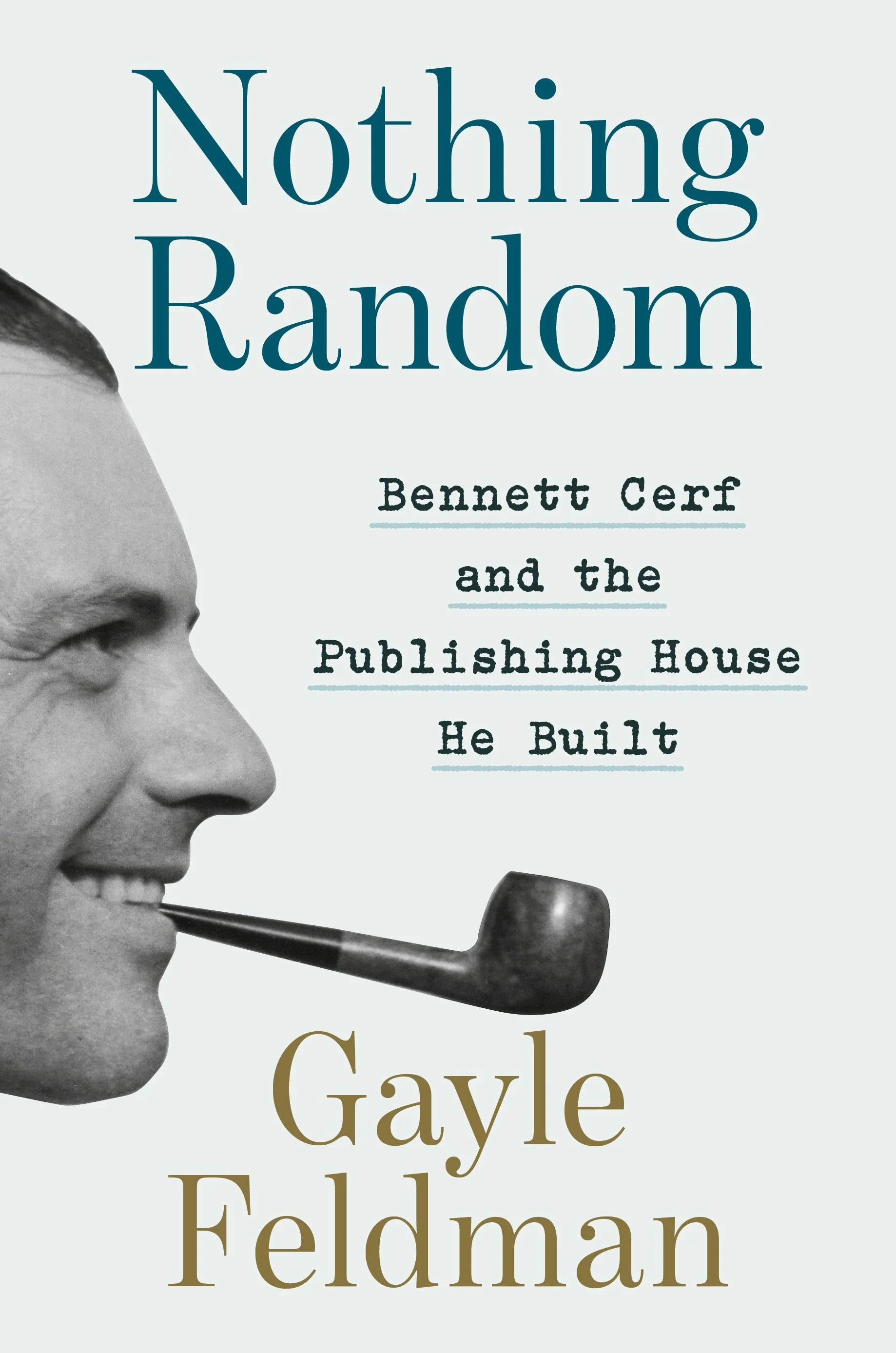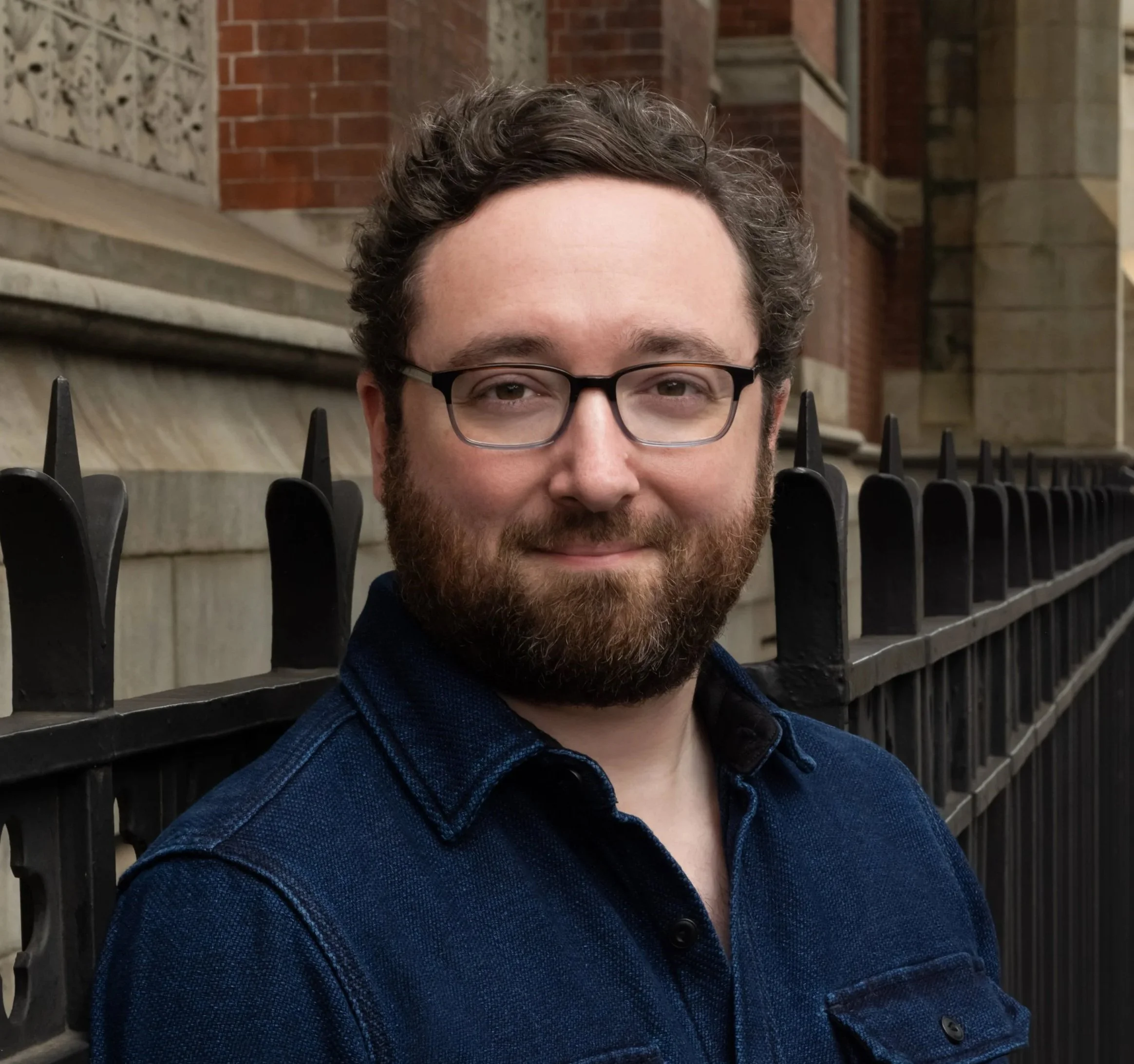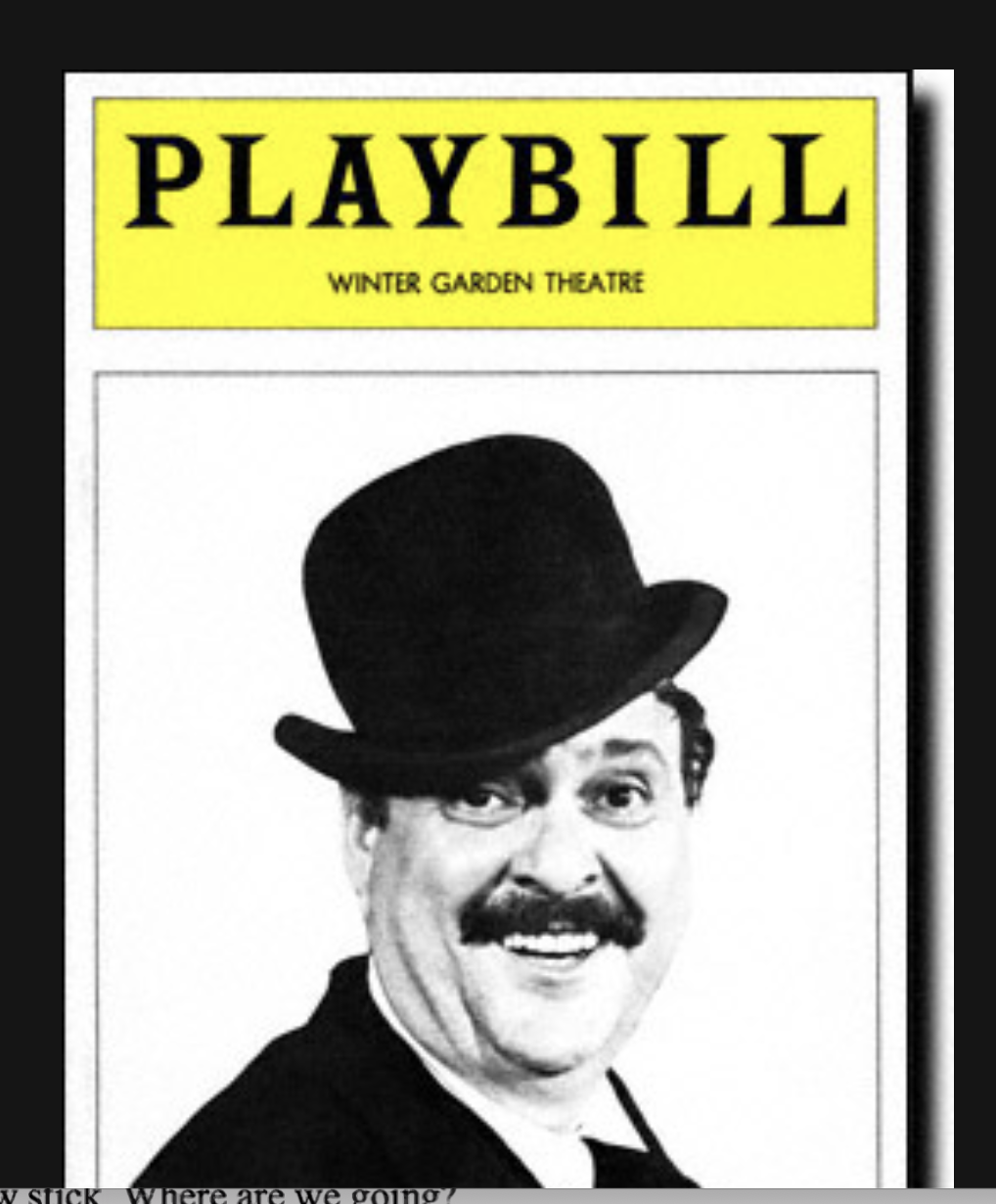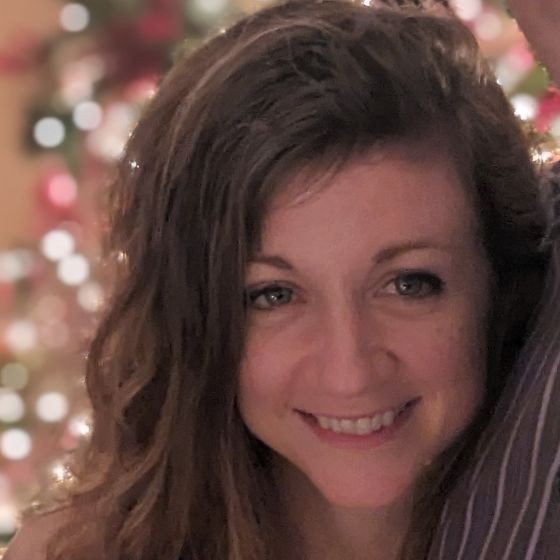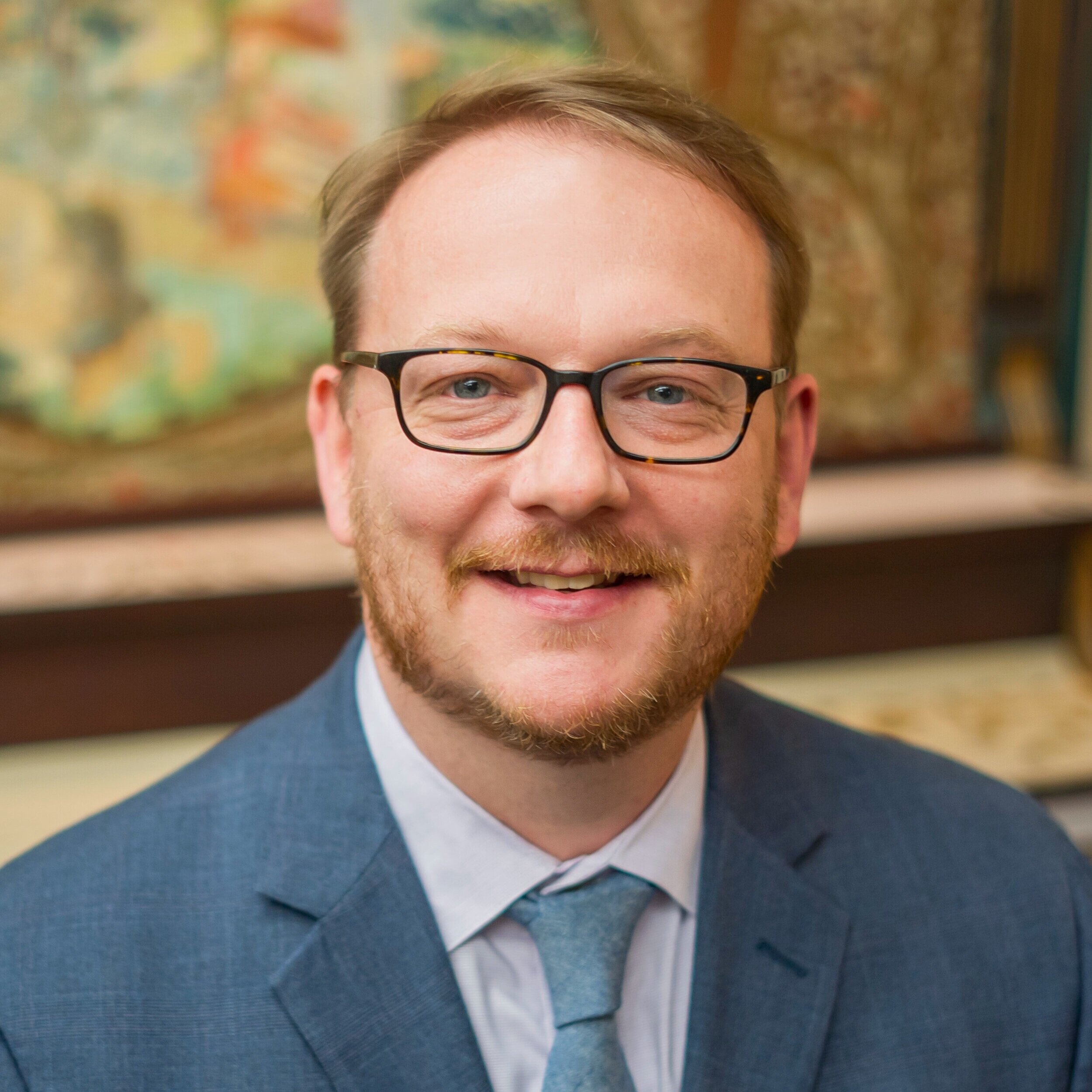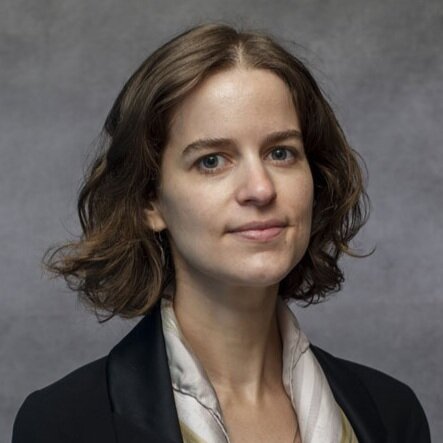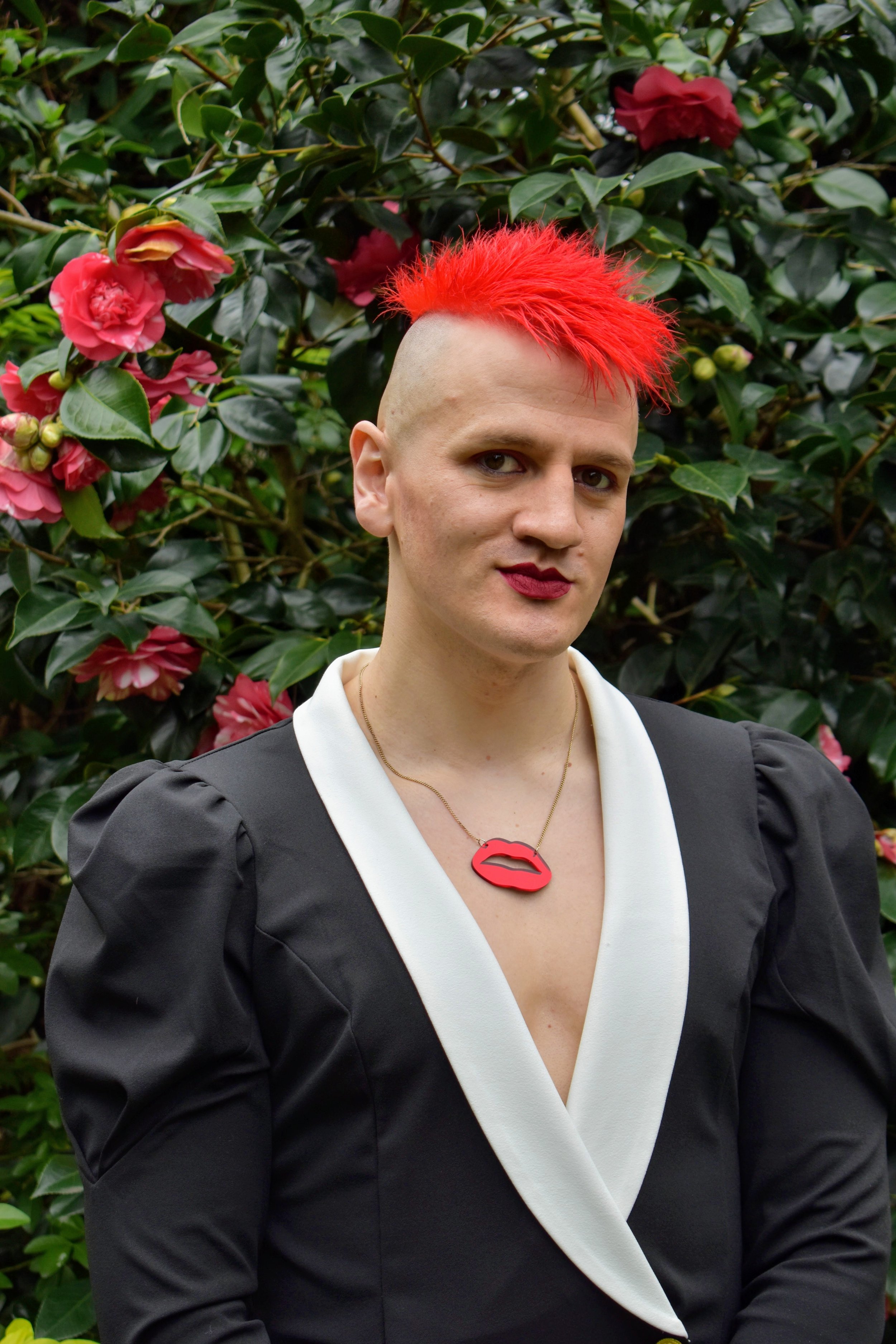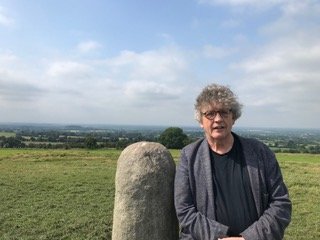The James Joyce Society requests that all non-members donate $10 to attend individual events. Except students and early-career contingent scholars, for whom it’s all free.

Lunchtime Book Launch: New Biographies of Bennett Cerf (by Gayle Feldman) and Margaret Anderson (by Adam Morgan)
Please join the James Joyce Society for our latest installment in our Lunchtime Launch Series:
Nothing Random by Gayle Feldman
A Danger to the Minds of Young Girls by Adam Morgan
Presentations by both authors, followed by a Q&A/Discussion (moderated by James Joyce Society President, Jonathan Ezra Goldman)
This event will meet over Zoom. RSVP required (forthcoming).
At midcentury, Bennett Cerf was a household name—witty, widely-beloved, fun-loving, and a familiar face each week as a panelist on What’s My Line? But before television made him a national personality, Cerf was a visionary force who transformed publishing in America. In her landmark biography, NOTHING RANDOM: Bennett Cerf and the Publishing House He Built (Random House hardcover; On Sale: 1/13/26), Gayle Feldman reveals the driven, paradoxical young man who vowed to become a great publisher—and did. Over two decades in the making, and drawing on more than 200 interviews, previously unavailable private letters, and extensive archival research, Feldman brings Cerf’s story vividly to life.
Gayle Feldman, New York based, has written for Publishers Weekly for forty years, including as a senior staff editor; since 1999, as U.S. correspondent for The Bookseller, she has analyzed the American book business for U.K. readers; and she has contributed features and reviews on books to The New York Times, The Nation, The Daily Beast, and others. Her essays have appeared in The New York Times, Los Angeles Times, The Philadelphia Inquirer, and The Times of London. She is the author of the cancer memoir You Don’t Have to Be Your Mother, published by W.W. Norton, and was awarded a National Arts Journalism Program fellowship at Columbia University through which she published Best and Worst of Times: The Changing Business of Trade Books, which she discussed on PBS NewsHour and NPR’s On the Media. The National Endowment for the Humanities has supported her work on Nothing Random with a Public Scholar Award.
Already under fire for publishing the literary avant-garde into a world not ready for it, Margaret C. Anderson’s cutting-edge magazine The Little Review was a bastion of progressive politics and boundary-pushing writing from then-unknowns like T.S. Eliot, Ezra Pound, William Butler Yeats, and Djuna Barnes. And as its publisher, Anderson was a target. From Chicago to New York and Paris, this fearless agitator helmed a woman-led publication that pushed American culture forward and challenged the sensibilities of early 20th century Americans dismayed by its salacious writing and advocacy for supposed extremism like women’s suffrage, access to birth control, and LBGTQ rights.
Author, journalist, and literary critic Adam Morgan brings Anderson and her journal to life anew in A Danger to the Minds of Young Girls, capturing a moment of cultural acceleration and backlash all too familiar today while shining light on an unsung heroine of American arts and letters. Bringing a fresh eye to a woman and a movement misunderstood in their time, this biography highlights a feminist counterculture that audaciously pushed for more during a time of extreme social conservatism and changed the face of American literature and culture forever.
Adam Morgan is a culture journalist and critic who lives near Chapel Hill, North Carolina. His writing regularly appears in Esquire, and has also been published in The Paris Review, Scientific American, Los Angeles Times, The Guardian, and more. He spent a decade in Chicago, during which time he founded the Chicago Review of Books and covered the city’s arts and culture for Chicago magazine and the Chicago Reader.

Lunchtime Launch: Chris GoGwilt, Keri Walsh, and Shinjini Chattopadhyay, "Joyce Studies Annual, Special Issue"
Please join the James Joyce Society for our latest installment in our Lunchtime Launch Series:
Joyce Studies Annual; Special Issue: Networks of Transnationality
Moderated by JSA Guest Editor, Shinjini Chattopadhyay
in conversation with Special Issue contributors: Ronan Crowley, Julieann Veronica Ulin, Amanda Sigler, Barbara Hoffman, Michelle Clayton, Masaya Shimokusu, Jenkin Benson, Zoe Patterson, and Carmela Esposito
Opening Remarks by JSA editors, Chris GoGwilt and Keri Walsh
This event will meet over Zoom. RSVP required (forthcoming).
What does it mean to read James Joyce along the networks of transnationality in 2026? Does it mean meticulously tracking all the numerous global locations mentioned in his works? Does it concern examining the countless literary allusions and linguistic experiments curated from diverse world literatures in his writing? Or does it entail comparing Joyce’s works with other world writers? These are some of the questions that enliven the JSA special issue on networks of transnationality. Recognizing that transnationalism is ubiquitous in Joyce's works, all essays in the issue take up the question of how to perform transnational readings of Joyce's writing. The articles presented in this issue probe the inherent contradictions, slippages, and risks associated with performing transnational readings of Joyce and model ways to avoid replicating the stereotypes of center/periphery, major/minor, provincial/cosmopolitan.
I. Transnational Reflections
Ronan Crowley, “‘Who?’: Locating Joyce’s Transnational Women”
Julieann Veronica Ulin, “Pell-Mell Tolstoy”
Amanda Sigler, “Joyce’s Wartime Verse in Poetry Magazine”
Barbara Hoffman, “‘She’s Apples’: Food, Trade, and Australia in Joyce”
II. Transnational Excursions
Michelle Clayton, “Found in Translation: Recent Latin American Ulysses”
Masaya Shimokusu, “‘The Fall of Icarus’: Joycean Features in Ito Sei”
Jenkin Benson, “Insular Internationality: on James Joyce and David Jones”
Zoe Patterson, “Joyce Reading Groups and Transnationalism”
Carmela Esposito, “Joyce’s Legacy in Ali Smith”
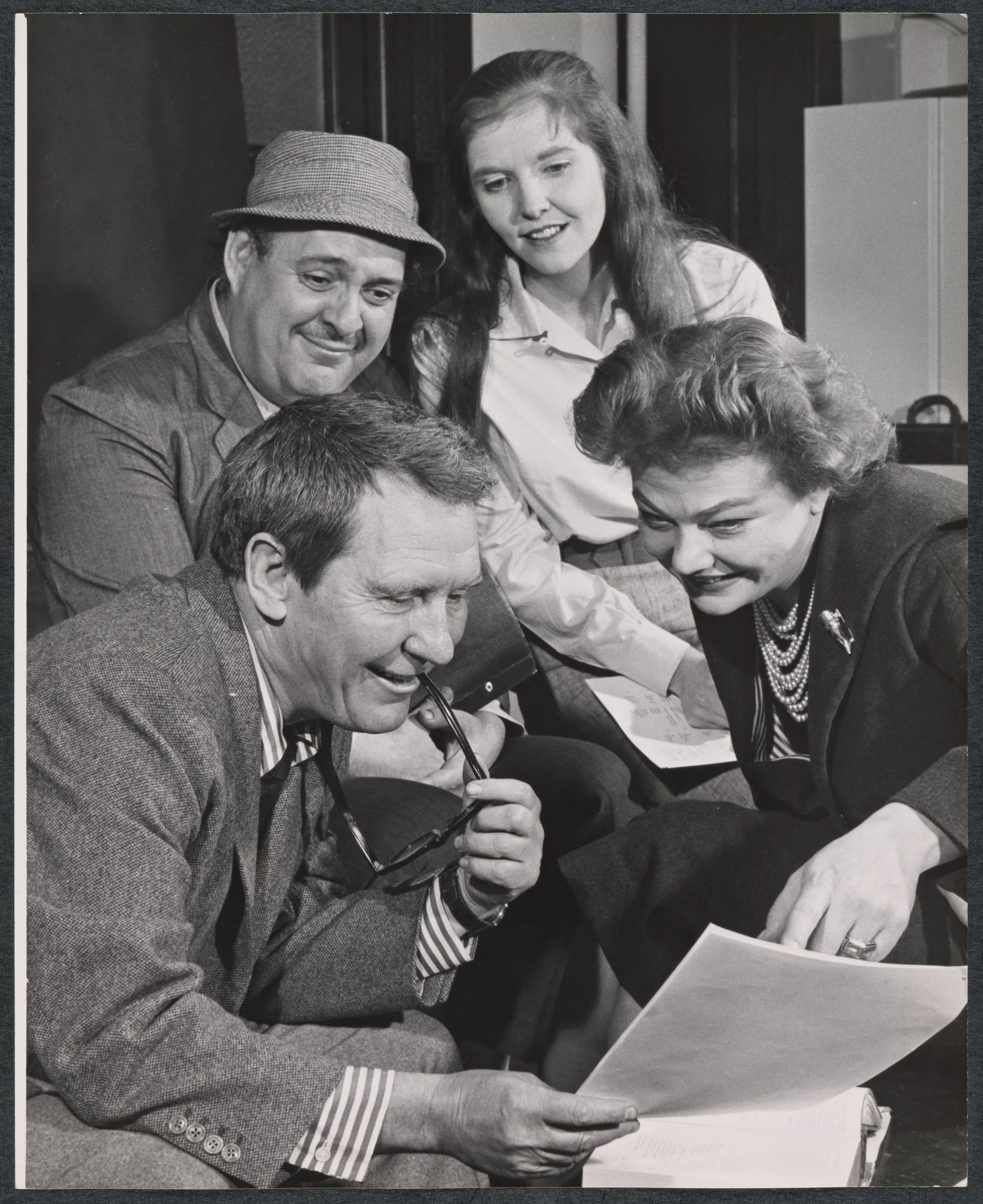
“Ulysses in Nighttown,” a Staged Reading by Elevator Repair Service
Join the James Joyce Society for a special pre-Bloomsday event:
A staged reading of Ulysses in Nighttown from our friends at Elevator Repair Service!
RSVP link to come.
Following up on the phenomenal fun of last year's staged reading of Exiles, we have commissioned Elevator Repair Service to stage a reading of Ulysses in Nighttown.
Ulysses in Nighttown, a stage adaptation of the "Circe" chapter of Ulysses, was created in 1958 by Marjorie Barkentin with heavy consultation of the Joyce Society members of the time. The original production starred Zero Mostel, Burgess Meredith, Carrol O'Connor, and Anne Meara. The 1974 revival starred Mostel again, plus Finnula Flanagan and Tommy Lee Jones.

Adapting Ulysses: Interview with John Collins and Scott Shepherd from Elevator Repair Service
Join a conversation between the James Joyce Society and Elevator Repair Service on Joyce’s birthday! Creators of ERS’ Ulysses, John Collins and Scott Shepherd, will talk with Gregory Erickson. In-person only event at New York Tech.
Click here to RSVP (required to attend)
John Collins founded Elevator Repair Service in 1991. Since then, he has directed or co-directed all of the company’s productions and also serves as the company’s artistic director. ERS productions directed by Collins include Ulysses, Cab Legs, Room Tone, Gatz, The Select (The Sun Also Rises), The Sound and the Fury, Arguendo, and numerous others. He is the recipient of a Guggenheim Fellowship, a United States Artists Fellowship and a Doris Duke Performing Artist Award.
Scott Shepherd has been a member of Elevator Repair Service since 1994 when he played a drunk passed out on a radiator in McGurk: A Cautionary Tale. Other ERS appearances include Gatz, Measure for Measure, Cab Legs, and most recently Ulysses, which he co-directed. He has also worked with The Wooster Group for over 25 years, performing in Hamlet, The Town Hall Affair, Poor Theater, and To You, The Birdie!, among others. He won Obie Awards for Gatz and Poor Theater. His screen credits include The Phoenician Scheme, Killers of the Flower Moon, The Last of Us, First Cow, El Camino, True Detective, The Young Pope, and Bridge of Spies.
Conversation facilitated by…
Gregory Erickson is Professor of Interdisciplinary Studies at New York University’s Gallatin School, where he teaches courses on modern literature, James Joyce, popular culture, and religion. He is the author of The Absence of God in Modernist Literature (Palgrave Macmillan, 2007), the co-author, with Richard Santana, of Religion and Popular Culture: Rescripting the Sacred (McFarland, 2008; 2016), and the co-editor of the collection Reading Heresy: Religion and Dissent in Literature and Art (De Gruyter 2017). His two most recent books are Christian Heresy, James Joyce and the Modernist Literary Imagination (Bloomsbury 2022) and Speculative Television and the Doing and Undoing of Religion (Routledge 2022). He is a founding member and former president of the International Society for Heresy Studies. He is also a part time professional trombone player.

Lunchtime Book Launch: Barry Devine and Ellen Scheible: "Teaching James Joyce in the Twenty-First Century"
Please join the James Joyce Society for our latest installment in our Lunchtime Launch Series:
Teaching James Joyce in the Twenty-First Century, edited by Barry Devine and Ellen Scheible.
A roundtable featuring the editors and contributors to the volume.
This event will meet over Zoom. RSVP (required) at this link for Zoom information.
Teaching James Joyce in the Twenty-First Century presents examples of bold, innovative pedagogical techniques instructors have used to adapt the study of Joyce’s work for the contemporary classroom. Leading Joyce scholars share approaches that go beyond the traditional university lecture hall to include experiences teaching high school students, senior citizens, art students, book club members, and people in prisons.
The strategies in this inspirational volume range from class discussions to creating art and music to walking city streets. Works examined include the complex Finnegans Wake and the influential modernist milestones Ulysses and A Portrait of the Artist as a Young Man. While Joyce is often viewed as an essential and foundational author of Irish literature, contributors to this volume argue that the spirit of Joyce’s writing is global, and they offer suggestions for teaching these works in an international context.
Students are often daunted by the perceived difficulty and inaccessibility of Joyce, but this volume helps both new and experienced teachers of Joyce make the writer’s texts understandable, relatable, and even fun. These authors argue that reading Joyce helps develop skills in holding and interrogating opposing ideas, skills that are essential in navigating the modern academic and political landscape. In grappling with Joyce, students will recognize his writing as relevant and urgent.
Barry Devine is an Associate Professor of English at Heidelberg University. He teaches British and Irish literature, Women's Literature, LGBTQ+ Literature, and Literary Theory. His research primarily involves the manuscripts and other pre-publication materials of James Joyce. His work has appeared in The Irish Bildungsroman (Syracuse UP 2025) and The Cambridge Centenary Ulysses (2022).
Ellen Scheible is Professor of English and founder of the Irish Studies program at Bridgewater State University. She is the author of Body Politics in Contemporary Irish Women’s Fiction: The Literary Legacy of Mother Ireland (Bloomsbury 2025). She is co-editor of The Dark: A Critical Edition (Syracuse UP 2025) with Anna Teekell; Teaching James Joyce in the 21st Century (UP of Florida 2025) with Barry Devine; and Rethinking Joyce’s Dubliners (Palgrave 2017) with Claire Culleton. Her work has appeared in various journals including New Hibernia Review, James Joyce Quarterly, Criticism, Irish University Review, and Tulsa Studies in Women’s Literature. She is currently coediting a special issue of LIT on Irish women's genre fiction with Tina Morin.
In conversation with Teaching James Joyce contributors…
Talia Abu is an early career researcher, lecturing at Tel Aviv University and the Hebrew University of Jerusalem. She teaches mostly modernist and postmodernist texts, with special attention to the intersections between literature and cultural studies. She is the author of Guilt and “Finnegans Wake”: From Original Sin to the Irredeemable Body. This project, as well as her previously published work on defecation in Finnegans Wake, intertwine three prominent topics in literary research: the material body, the materiality of language, and affect theory.
Robert Berry, trained as a painter and cartoonist, has spent sixteen years of his life studying Joyce for ULYSSES “seen,” his adaptation of the text into a (very) long-form graphic novel. He publishes his work regularly in the James Joyce Quarterly and has taught the book, in a variety of venues, for nearly ten years. Occasionally he still gets the opportunity to paint pretty pictures that have nothing to do with any of that.
Mary M. Burke, professor of English at the University of Connecticut, is the author of Race, Politics, and Irish America: A Gothic History. Her first book was a cultural history of Irish Travellers, and she collaborated on the reissue edition of Juanita Casey’s The Horse of Selene. A former NEH Irish Institute Fellow at the University of Notre Dame, she is a graduate of Trinity College Dublin and Queen’s University Belfast.
Zoë Henry is an Assistant Professor in the Department of English and Comparative Literature at Columbia University, where she is also affiliated with the African American and African Diaspora Studies Department. Her first book project, The Public Interior: Modernism, Theatricality, and Interracial Aesthetics, explores how women across a mixed-race modernist archive used the resources of the city to remain “private in public,” thus desegregating the historiography of modernist literature. It develops a notion of privacy that moves beyond the domestic to intertwine with law, eros, and the psyche, arguing that privacy’s denial to Black and mixed-race women can be understood as an afterlife of slavery, unfolding in the twentieth-century metropolis as in our own, post-Roe moment. Her work has appeared or is forthcoming in Modern Fiction Studies, Modernism/modernity Print Plus, Feminist Modernist Studies, the Virginia Woolf Miscellany, and the Oxford Handbook of Queer Modernisms, as well as in edited volumes on such authors as Joseph Conrad and Virginia Woolf.
Barbara M. Hoffman teaches in the Department of Writing Studies at the University of Miami. Before returning to higher education in 2011, she taught high school English for a decade in the Boston area, including teaching Joyce in her AP Literature classes. As a PhD student, she served as the managing editor of the James Joyce Literary Supplement from 2014 to 2016 and has published on Portrait in various media. Her main interests are Joyce, Irish convicts in Australia, and contemporary Australian fiction. She is currently the vice president of the American Association of Australasian Literary Studies.

Casey Drosehn Gough: "Joycean Saínz: Ulysses, Finnegans Wake, and Mexican History in the Novels of Gustavo Saínz"
In-person event. No RSVP needed.
For a hundred years now, Joyce and his corpus have furnished Latin American artists with structures capable of organizing difficult local experiences, and of translating those experiences into forms that are internationally recognizable. In an effort to emphasize both the vitality and complexity of Joyce’s legacy in Latin America, I argue that the Mexican novelist Gustavo Saínz (Mexico City, 1940-Bloomington, Indiana 2015) invokes the Joycean novel in a contestory fashion, as a challenge to hegemonic discourses that have misrepresented key aspects of the history and lived experience of Mexican subjects. After providing an overview of Latin American reception of Joyce and the tensions that surround that reception, in the first part of my talk I will focus on how Saínz’s 1968 comic novel Obsessive Circular Days depicts the phenomenon of reading Ulysses in Mexico City in the 1960s. In the second part of my talk, I turn to Saínz’s 1981 novel Aztec Ghosts: A Pre-Text. The catalyst for the novel was one of the major archaeological discoveries of 20th-century Mexico: the accidental uncovering of the Coyolxauhqui monolith in Mexico City in 1978, followed by the discovery of the Huēyi Teōcalli, the Great Temple of the Mexica people’s capital city Tenochtitlan. In my reading, the pages of Aztec Ghosts represent a site of confluence between Mexican archaeology and Finnegans Wake. Through his novelization of this archaeological discovery and the public response it generated, in Aztec Ghosts Sainz draws on Wakean forms and themes in order to challenge the authoritarian Mexican government’s reductive, romanticized depictions of the country's precolonial past.
Casey Drosehn Gough (B.A. Williams College, PhD Northwestern University) is a Senior Lecturer of English at North Central College in Naperville, IL. She studies Modernisms and the Global Avant-Garde from a Latin Americanist perspective, and has published on Surrealism, World Cinema, Roberto Arlt, and on Odiseo, Marcelo Zabaloy's lipogram translation of Ulysses. Her current research focuses on the Latin American reception of James Joyce. With Federico Barea, she has translated works by Néstor Sánchez and William Burroughs, as well as The Criminalization of Democratic Politics in the Global South, with a foreword by Lula da Silva. She is also working on an adaptation of Ulysses set in present-day Chicagoland, an episode of which is forthcoming in the James Joyce Quarterly.

Julie McCormick Weng: “James Joyce’s Encounter with Sexual Harassment”
Julie McCormick Weng: “James Joyce’s Encounter with Sexual Harassment”
In-person at New York Tech and livestreamed for our out-of-town members. To RSVP to attend in-person, click here.
James Joyce’s short story, “An Encounter,” depicts the lives of two boys on a day when they skip school and are confronted by a sexual predator. In published manuscripts and correspondence, Joyce and his brother Stanislaus claimed that the events in the story were based upon their “actual personal experience,” and they would write about their memories of the predatory man. If the fictionalized encounter represents the nature of the real one, then the children were victim-survivors of a form of non-contact sexual abuse. Today we would describe this abuse as an act of sexual harassment and the exploitation of children. The Joyce brothers’ claim is rarely acknowledged in scholarship or footnotes to critical editions of Dubliners. This presentation will argue that their experience must be brought into the central discourse of the text; for “An Encounter” tells us a story about Joyce and his time as well as a story about us and our time. Joyce’s troubled efforts to get the story published and the varied reception of his claim of having met the predator himself share relevant connections to the way that we assess and respond to the testimonies of victim-survivors today, including the authenticity and significance of those testimonies. His experience also prompts scholars to consider how to ethically approach fictionalized representations of sexual harassment in literature, such as the one depicted in “An Encounter.” Joyce’s short story is not a testimony but a creative rendering of a biographical event. With this challenging context in mind, this presentation will provide methodologies for researching and teaching “An Encounter,” while also developing an ethics for placing the story alongside Joyce’s biography.
Julie McCormick Weng is Associate Professor of English at Texas State University. She has published widely on Irish modernism and has coedited two volumes, including Race in Irish Literature and Culture (Cambridge University Press, 2024), with Malcolm Sen; and Science, Technology, and Irish Modernism (Syracuse University Press, 2019), with Kathryn Conrad and Cóilín Parsons.

"Anti-Semitism and Blackface America as Metaphor in James Joyce's Ulysses," Amadi Ozier
This talk asks the question: why and how does James Joyce’s Ulysses engage American racial iconography like lynching and blackface minstrelsy? Amadi Ozier argues that Joyce stages American racism as a metaphor for other kinds of racial and national identification, especially through British anti-semitism. One of the ways that the novel makes sense of the characters’ encounters with anti-semitism, anti-Irish sentiment, and xenophobia is by placing lynching and blackface minstrelsy on a spectrum of subjugation and alienation that attaches the violence of anti-semitism to specific kinds of representations of racial violence. Joyce develops his modern aesthetic through a performative engagement with and disengagement from global representations of American racial violence, what Ozier calls “lynching modernism."
Amadi Ozier is a scholar specializing in black diasporic literature, with a particular interest in humor in psychoanalysis, performance studies, black capitalism, and cultural history. They are currently developing a book project on “uppity humor” in black middle-class literature at the turn of the twentieth century. Their work has been published or is forthcoming in Social Text, Modernism/modernity, Early American Literature, Oxford Handbook of African American Humor, and Oxford Bibliographies in African American Studies.
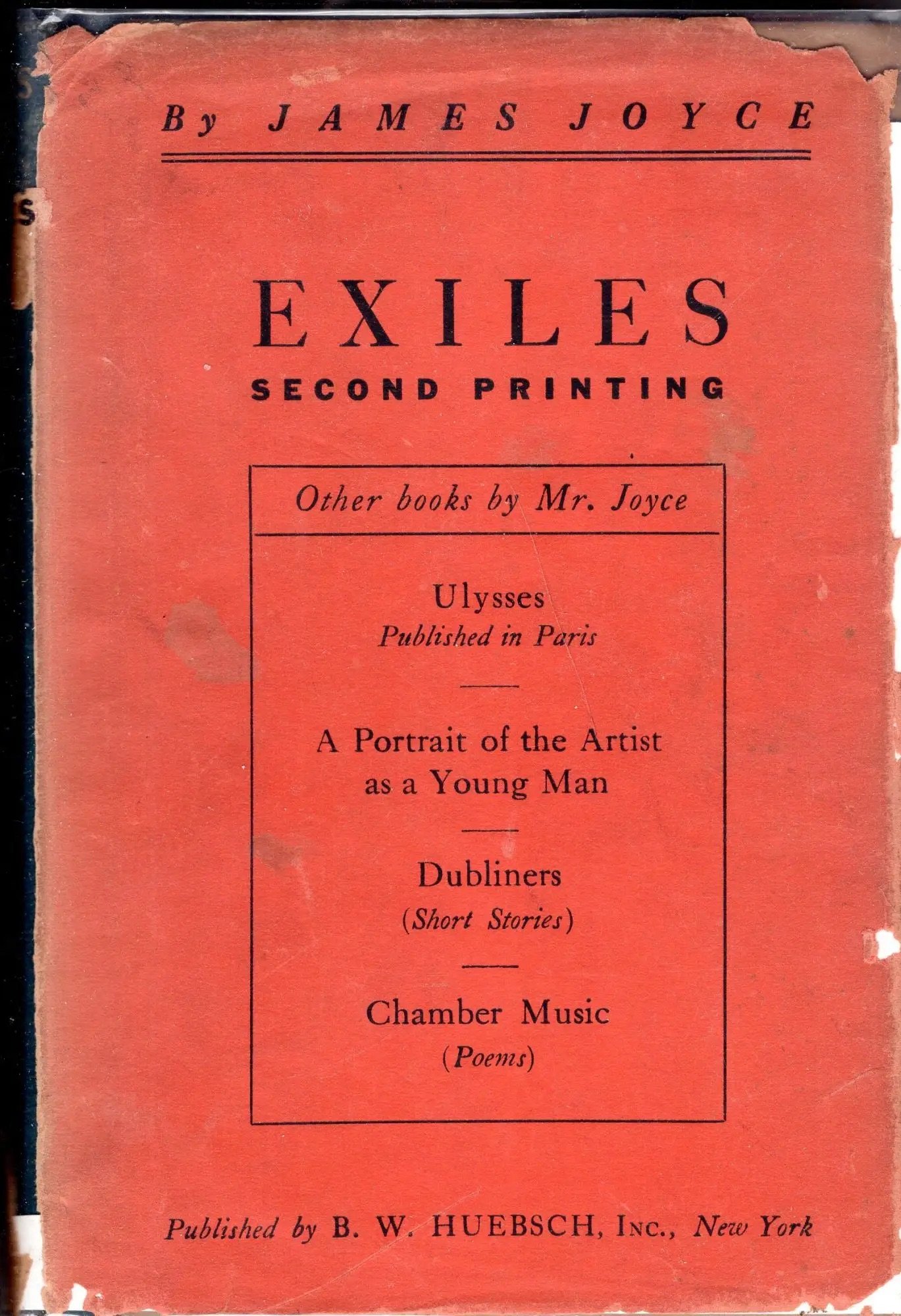
Staged Reading of Exiles, by Elevator Repair Service
Join the Joyce Society and Elevator Repair Service for a staged reading of Exiles!
The Neighborhood Playhouse, 1917
This year is the centenary of the first staging of Joyce’s Exiles in English, which happened right here in New York City, at the Neighborhood Playhouse in February 1925. To commemorate the anniversary, the Joyce Society has commissioned a staged reading of Joyce’s play by Elevator Repair Service. You may know Elevator Repair Service from their recent performance of Ulysses or from their readings at Bloomsdays with the Joyce Society at Dive 106 in the past.
Join us for our most exciting event of the year!
This staged reading happens during our Exiles reading group. Sign up for the reading group here.

“Guilt and Finnegans Wake: From Original Sin to the Irredeemable Body,” Talia Abu (Book Launch)
The Joyce Society presents the book launch for Talia Abu’s Guilt and Finnegans Wake: From Original Sin to the Irredeemable Body, available here from the University Press of Florida. Dr. Abu will be in conversation with Sam Slote, Trinity College, Dublin.
This will be a remote event. Zoom links will be provided with RSVP (HERE)
James Joyce’s last novel, Finnegans Wake, is notorious for its complex structure and considered by many to be unreadable. Approaching this complicated book with attention to the theme of guilt, an important concept that has been underexplored in studies of the Wake, Talia Abu presents a clear and thorough interpretation that helps illuminate the book for even the most novice Joyce readers.
In Guilt and “Finnegans Wake,” Talia Abu examines how Joyce portrays the evolution of cultural beliefs about morality, from the concept of a moral code set in place by a transcendental authority to an embodied morality that originates in material existence. Through close readings of the novel, Abu demonstrates that Joyce engages with guilt as it relates to the Catholic doctrine of original sin, the institution of the marriage contract, the theories of Nietzsche, and the views of Freud—including Freud’s emphasis on the physical experience as the primary aspect of being. Ultimately, Abu argues that Joyce sees guilt as a personal and unique experience and that emotions such as guilt can be reclaimed from the influence of religious and social institutions.
Delving into Joyce’s representation of historical events while also analyzing Joyce’s wordplay and linguistic techniques and drawing from multiple disciplines to understand different conceptions of guilt, this book shows the importance of the theme to the form of Finnegans Wake and Joyce’s craft more broadly. Pursuing the questions and ideas that Joyce raises about guilt and morality, Talia Abu makes a case for the enduring relevance of Joyce’s work today.
Talia Abu is a lecturer at the Hebrew University of Jerusalem, where she also earned her PhD. She explores the intersections between literature, philosophy, and cultural studies, with particular focus on morality, food studies, emotions, and the discourses surrounding the body, in texts spanning from the 19th to 21st centuries. She has lectured widely on topics such as Modernism, masculinity studies, women’s writings, and Romantic poetry. She is also a committed human rights activist.

"Ulysses: A Design History," Glenn Johnston
RSVP (required) HERE.
The design history of Ulysses is no less interesting than its publication history. James Joyce himself was involved in the design of the Shakespeare and Company Ulysses. Some of the most creative minds of the twentieth century, including Ernst Reichl, Henri Matisse, Edward McKnight Kauffer, and Carin Goldberg, worked on subsequent editions. Just as Ulysses the novel has inspired generations of readers and writers, Ulysses the book has inspired generations of artists and designers.
Glenn Johnston is Treasurer of the James Joyce Society, a patron of the Museum of Literature Ireland, and a collector of books by and about Joyce. He has had a varied career, including stints in journalism, public affairs, and consulting. He studied Law at Trinity College Dublin.

The James Joyce Collection at the University at Buffalo, with James Maynard, Alison Fraser, and Damien Keane
This is a remote event. RSVP and Zoom link here.
In this presentation, Associate Curator Alison Fraser and Curator James Maynard will discuss the history and holdings of the University at Buffalo James Joyce Collection and present a virtual tour of highlights. Part of the University Libraries’ Poetry Collection, the library of record for 20th- and 21st-century Anglophone poetry, the UB James Joyce Collection is the world’s largest and most comprehensive compilation of manuscripts and other materials related to the renowned Irish author. It comprises more than 10,000 pages of Joyce’s working papers, notebooks, manuscripts, photographs, correspondence, portraits, publishing records, important memorabilia, and ephemeral material, as well as Joyce’s Paris library. Supplementing the archive is a complete set of first editions including most issues and states of every book published by Joyce, translations, a large number of his magazine appearances, and virtually all significant criticism. Together, these materials thoroughly document Joyce’s artistic life and provide unmatched glimpses into his writing process and literary relationships. For Bloomsday 2021 the Poetry Collection launched a James Joyce mural in downtown Buffalo and they are currently designing a UB James Joyce Museum for which they received $10 million in New York State funding.
As Curator of the University at Buffalo (UB) Libraries Poetry Collection, James Maynard directs the UB James Joyce Collection. In 2009 he helped organize the exhibition Discovering James Joyce: The University at Buffalo Collection and edited the exhibition catalogue of the same title. He has published widely on and edited a number of collections relating to the poet Robert Duncan, including Ground Work: Before the War/In the Dark (2006), (Re:)Working the Ground: Essays on the Late Writings of Robert Duncan (2011), and Robert Duncan and the Pragmatist Sublime (2018). His edition of Robert Duncan: Collected Essays and Other Prose (2014) received the Poetry Foundation’s Pegasus Award for Poetry Criticism. His most recent publication (coedited with Judith Goldman) is Soundings in Context: Poetry's Embodiments (2024), the second volume in the University at Buffalo Robert Creeley Lectures in Poetry and Poetics series.
Alison Fraser is Associate Curator of the Poetry Collection and Curator of the Rare & Special Books Collection at UB. In 2022, she curated the exhibit “That all books might published be”: Sylvia Beach’s Ulysses as part of the Poetry Collection’s celebration of the centennial. She has edited The Collages of Helen Adam (2017) and co-edited Nice: Collected Poems by David Melnick (2023), and has published on the history of twentieth-century literary archives, teaching in special collections, and the homemade ephemeral book objects of twentieth-century poets. She is a senior fellow in the Andrew W. Mellon Society of Fellows in Critical Bibliography at Rare Book School.
Damien Keane is Associate Professor in the Department of English at the State University of New York at Buffalo. He is the author of Ireland and the Problem of Information (Penn State UP, 2014), as well as articles on radio broadcasting, intelligence monitoring, and literary recordings. He is currently working on two projects: in the shorter term, one on the afterlives of James Joyce's recordings in the LP era; and in the longer term, one that centers on record keeping and so-called grey literature.

Vicki Mahaffey, Book Launch: "The Joyce of Everyday Life"
The James Joyce Society presents:
Vicki Mahaffey, online book launch for The Joyce of Everyday Life
in conversation with Jonathan Goldman, JJS president
This is a remote event. RSVP here (required) to receive the remote link
Vicki Mahaffey is Kirkpatrick Professor of English and Gender and Women's Studies, emerita, at the University of Illinois, Urbana-Champaign, and Professor of English, emerita, at the University of Pennsylvania. A Guggenheim fellow, she has written and edited several books on Joyce, Yeats, Wilde, Modernist Literature, and Irish Literature. She is currently editing a special issue for the James Joyce Quarterly on Joyce and Women.

"Complicit Reading: Castle-Agent Readers and the 'Hostile Milieu' of Ulysses," Eric A. Lewis
Please RSVP here.
Few works of literature are as closely linked to specific physical space as Ulysses is linked to Dublin. Throughout Ulysses, named characters often stand at or walk past a clearly specified, mappable point: an intersection, address, or business. In response, the novel is mapped, guidebooks to Joyce’s Dublin are published, and Bloomsday celebrants reenact scenes at the locations where they are set. Analyses of this aspect of Ulysses often characterize Joyce or the reader as city surveyor, census taker, or local. In contrast, I consider this mappable detail in relation to the network of informants and police that appears throughout Ulysses. Contrasting the Dublin of Ulysses with the London of Virginia Woolf’s Mrs Dalloway, I argue that Joyce’s representation of Dublin and many of its residents interpellates readers into the novel’s intelligence subplot. By framing readers as complicit in this source of conflict in the novel, Ulysses models a decolonial method of reader manipulation and (dis)identification.
Eric A. Lewis is a lecturer in the Department of English at Georgia State University. His research focuses on readers' relationships with characters in twentieth- and twenty-first-century Global Anglophone fiction, especially out of Ireland and South Africa. His work has been published in Interventions: The International Journal of Postcolonial Studies and the Canadian Journal of Irish Studies. His book manuscript, Complicit Reading, argues that postcolonial novels use a variety of narrative techniques to complicate reader-character relationships and frame readers as complicit in conflicts in the novel and in the novel's real historical context. He also cohosts the Ulysses discussion podcast tipsyturvy Ulysses with Shinjini Chattopadhyay and Wendy Truran.

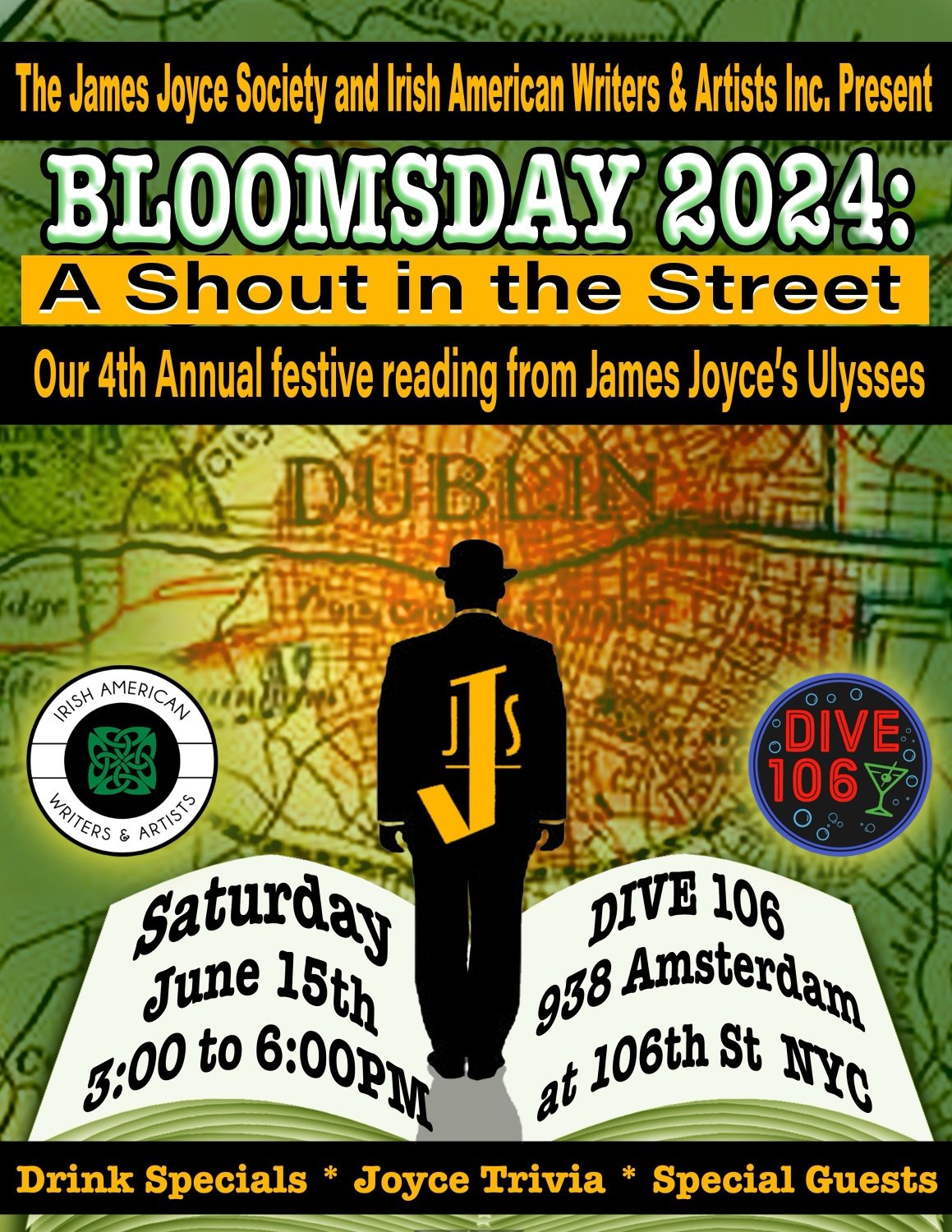

Alison Armstrong: "Joyce in transition: the birth of ALP"
Alison Armstrong’s talk will explore Jolas’s transition magazine as a modernist vehicle for experiments with language and in the other arts. Joyce’s “Work in Progress” would become Finnegans Wake and was arguably the most important and interesting of all the linguistic experiments.
Alison Armstrong is a writer and visual artist. Her book-length publications include the literary cookbook, The Joyce of Cooking (Station Hill 1986) and “The Herne’s Egg” by W.B. Yeats: The Manuscript Materials (Cornell UP 1993), as well as works of fiction, memoir, and criticism. Her criticism and reviews have appeared in the Irish Literary Supplement, the James Joyce Broadsheet, and American Arts Quarterly, among other venues. She is currently developing a series of large pastel drawings of prehistoric stones found at sites in Ireland, including the Boyne Valley.

Mary Burke, "Mixed: Race and Language in Ireland from Joyce to Ó Cadhain"
The James Joyce Society announces its annual Joyce birthday event at the Morgan Library and Museum featuring Mary Burke
Free for Joyce Society and Morgan Library members. Joyce Society members and guests, RSVP (required) here: https://forms.gle/r5FibyPFqcnuynMV8
Long excluded from Ireland’s internationally recognized modernist canon, Máirtín Ó Cadhain’s 1949 novel, Cré na Cille (usually translated as Graveyard Soil) is a late modernist western seaboard rejoinder to Ulysses in the Irish (Gaelic) language. Cré na Cille is set in Connemara, fetishized since Joyce’s lifetime as the linguistically and racially “pure” western heart of Gaelic Ireland. Joyce’s “Ireland: Island of Saints and Sages” inadvertently implies that the avant-garde was alien to a native language that was increasingly being hitched to the fantasy of a culturally, racially, and linguistically sealed West. However, Cré na Cille’s neologisms, French and English loan words, and mixed-race returned emigrant Connemara residents acknowledge the exchanges that arose from Ireland’s history of emigration and Empire. Altogether, Ó Cadhain continues the debate initiated by Joyce’s creation of a Jewish Irishman, extending it to prophetically ask if Irish culture can create imaginative and linguistic room - in either of its official languages - for Irish citizens of minority identity. This talk will close by considering issues of race, immigration, and the teaching and speaking of the Irish language in contemporary Ireland and Irish America.
Mary Burke, Professor of English at UConn, is the author of Race, Politics, and Irish America: A Gothic History (2023) as well as a cultural history of Irish Travellers (both Oxford University Press). She collaborated with Tramp Press on the 2022 reissue of Traveller-Romany Juanita Casey’s cult novel, The Horse of Selene. Her work has placed with JJQ, NPR, the Irish Times, Irish national broadcaster RTÉ, and Faber. A former University of Notre Dame NEH Irish Fellow, she was a 2022 LRH Fellow at her alma mater, Trinity College Dublin.
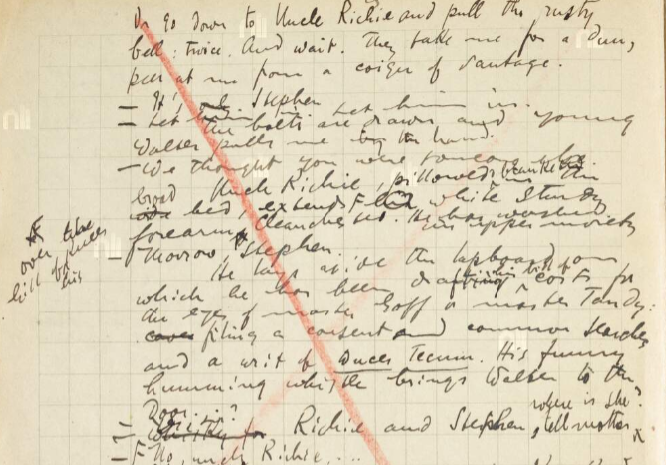
"Close Readings, Genetic Readings, Decolonial Readings of Ulysses" Shinjini Chattopadhyay
James Joyce's Ulysses has given way to various ways of reading the text. Some prefer to read it privately on their own, most enjoy reading it collaboratively in reading groups. Both private and public ways of reading Ulysses employ various modes of reading among which close reading and genetic reading have emerged to be particularly suitable for grappling with the compendious text. Is close reading, despite its shortcomings (suppression of historical context, singular attention to form over content), still relevant for reading Ulysses? Does genetic reading help with reading Ulysses in its expansive socio-historical context? Is there any merit to combining close and genetic readings of Ulysses? In my talk I will argue that in Ulysses close and genetic readings complement one another and can create a decolonial mode of reading.
Shinjini Chattopadhyay (she/her) is an Assistant Professor of Global Anglophone Literatures at Berry College, Mount Berry, GA. She completed her PhD at the Department of English, University of Notre Dame, IN, and earned her MPhil and MA in English Literature from Jadavpur University, India. She works on British and Irish modernisms and global Anglophone literatures. Her monograph-in-progress, “Plurabilities of the City,” investigates the construction of metropolitan cosmopolitanism in modernist and contemporary novels. She is the author of several book chapters and journal articles which have been published in James Joyce Quarterly, European Joyce Studies, Joyce Studies in Italy, and Modernism/Modernity Print+. She is an elected member of the board of trustees of the International James Joyce Foundation and she co-hosts a podcast titled TipsyTurvy Ulysses.
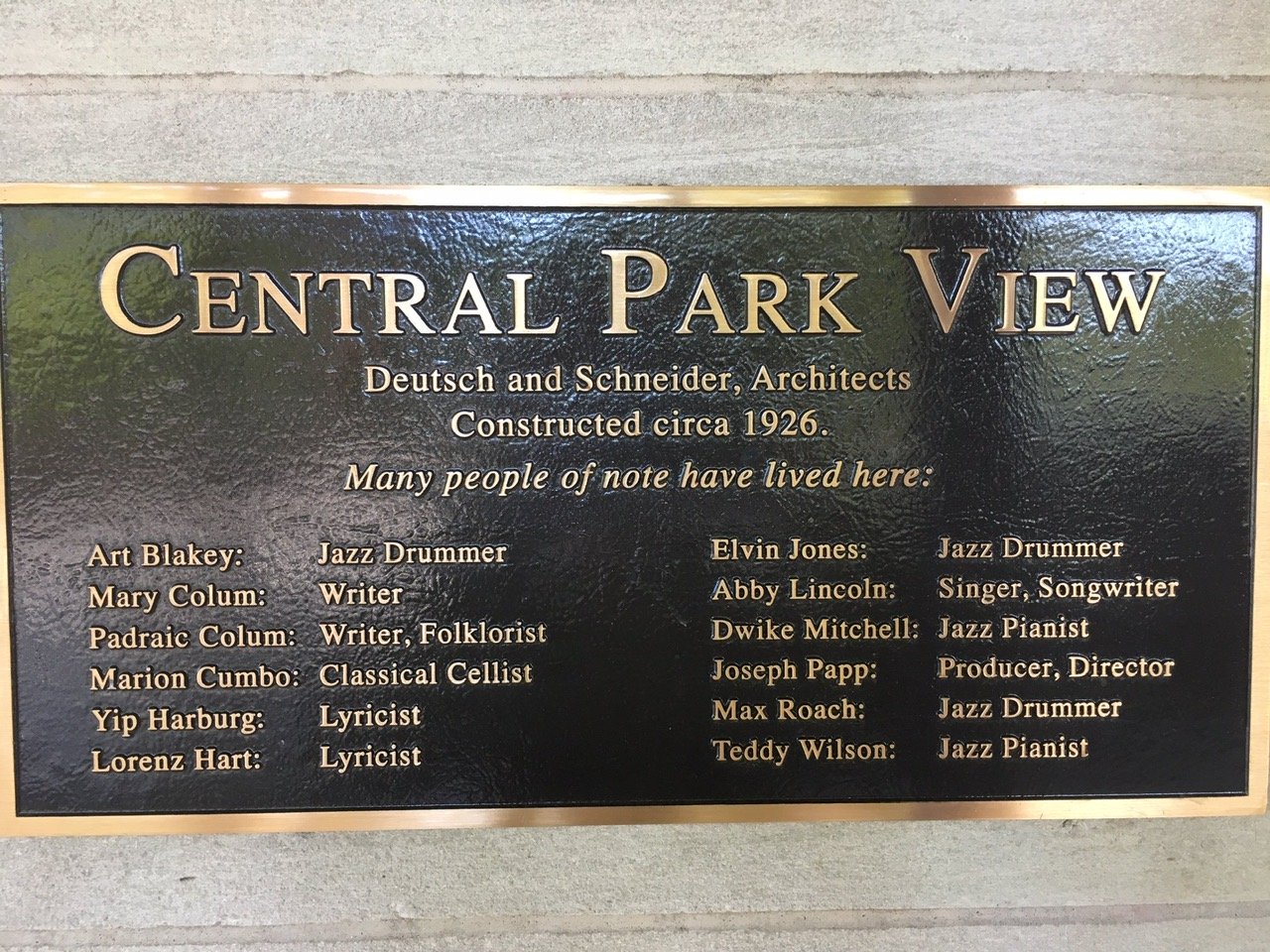
Joyce and New York City Walking Tour, Part Two: Uptown!, Glenn Johnston
Led by Joyce Society Treasurer, Glenn Johnston, the JJS presents its second walking tour on Joyce and New York City.
No RSVP necessary; just show up!
Many people associated with James Joyce lived on the Upper West Side or in Morningside Heights, including composer George Antheil, who once lived above Shakespeare & Co in Paris; Padraic and Mary Colum, who co-wrote Our Friend James Joyce; Morris Ernst, the lawyer who won the 1933 Ulysses case; F. Scott Fitzgerald, who greatly admired Joyce; BW Huebsch, who first published A Portrait; Helen Kastor, wife of Giorgio and mother of Stephen Joyce; patron John Quinn, who briefly owned the Ulysses manuscript; Ulysses pirate Samuel Roth; and artist Patrick Tuohy, who did portraits of Joyce and his father. The tour will explore their relationships with Joyce and with each other, and some related events that took place in the neighborhood.
Meet at The Hungarian Pastry Shop (1030 Amsterdam Ave.) at 4:30 pm for a 5 pm departure.
Glenn Johnston was educated at Trinity College Dublin and has had a varied career, including stints with the United Nations and in the fields of intelligence and risk consulting. He has been an avid collector of works by and about Joyce for 25 years.

“What’s Love Got To Do With It? The Joycean Anecdote and Femme-Queer Modernist Counterpublics,” Margot Backus
In her study, The Last Eminent Victorian, Julia Taddeo describes Virginia Woolf experiencing sex/gender euphoria in response to an anecdote of Lytton Strachey’s that turned on a particular male/male sexual escapade. Woolf was vastly well-read, and she belonged to circles that took pride in their sexual outspokenness, yet Strachey’s explicit description of sex between men clearly opened new vistas previously outside the young artist’s ken.
This Woolfian anecdote suggests the two key issues I will explore in this talk: the distinctive conventional license the anecdote affords, and the lack of concepts and vocabulary in patriarchal societies relating to sexual and gendered desires, acts and identities that exclude or “misuse” the penis. James Joyce, I will argue, with his encyclopedic literary inclusion of sex/gender desires and experiences of all kinds, afforded queer AFAB modernists (an anachronistic term I am adopting with impunity since lesbian is also anachronistic, and simultaneously overdetermined in unhelpful ways), drew on the license afforded by the conventions of Irish storytelling to disseminate a huge array of sexual possibilities, and drew the courageous support of many queer intellectuals who found in his literary “stories” the potential for self-invention through their own anecdotes, which formed new, affectively and erotically-bonded counterpublics.
Margot Gayle Backus is John and Rebecca Moores Professor of English at the University of Houston. She was 2014-15 Queens University Fulbright Scholar of Anglophone Irish Writing, and 2015 James Joyce Scholar in residence at the University of Buffalo. Her books include The Gothic Family Romance: Heterosexuality, Child Sacrifice, and the Anglo-Irish Colonial Order (Duke University Press, 1999), Scandal Work: James Joyce, the New Journalism, and the Home Rule Newspaper Wars (University of Notre Dame Press, 2013), and, with Joseph Valente, The Child Sex Scandal and Modern Irish Literature: Writing the Unspeakable (Indiana University Press, 2020).

Making Joyce Studies Safe for All, roundtable and open forum (remote) (RSVP necessary)
The James Joyce Society will hold a remote roundtable and open forum on the subject of "Making Joyce Studies Safe for All." Friday, September 15th, 12 noon-2pm Eastern US time (1700hr in Dublin, 9am in Los Angeles, etc. etc.). We planned this event in response to ongoing problems of sexual harassment plaguing Joyce studies. These problems were strongly articulated in the “Open Letter to the James Joyce Community” and have persisted since the letter’s 2018 publication.
Participants will include Katherine Ebury, Zoë Henry, Casey Lawrence, and Sam Slote, with JJS ombudsperson Celia Marshik moderating.
All are invited to attend and discuss the Joyce scholarly community's longtime and ongoing insufficient attention to the safety of women and emerging scholars, and to propose solutions. Other forms of harassment and marginalization may also emerge in the session.
To RSVP, please click here.
Please note that the $10 suggested donation is waived for this event.

The JJS Bloomsday Celebration with IAWA–featuring Elevator Repair Service
In partnership with the Irish American Writers and Artists, the James Joyce Society invites you to attend Bloomsday at Dive 106 on Amsterdam Avenue and 106th St., outdoors, on the street. Our friends from Elevator Repair Service will be performing two scenes from the stage adaptation of Ulysses that they debuted at last year’s “Bloomsday on Broadway.” We will have readings (including YOU reading your favorite passage, max. 3-minutes), trivia, t-shirt giveaways, food/drink specials, and more, ending with music by Liz Hanly.
Ulysses
Created by Elevator Repair Service
Directed by John Collins
Co-Direction and Dramaturgy by Scott Shepherd
Text by James Joyce
James Joyce’s Ulysses has fascinated, perplexed, scandalized, and/or defeated readers for over a century. Building on a rich history of staging modernist works—Gatz, The Sound and the Fury, The Select (The Sun Also Rises)—Elevator Repair Service now takes on this Mount Everest of 20th Century literature. Seven performers sit down for a sober reading but soon find themselves careening on a fast-forward tour through Joyce’s funhouse of styles, guzzling pints, getting in brawls, philosophizing, and committing debaucheries. With madcap antics and a densely layered sound design, ERS presents an eclectic sampling from Joyce’s life-affirming masterpiece. Ulysses will premiere at Fisher Center at Bard in September 2023.
From left to right: Dee Beasnael, Maggie Hoffman, © 2022 Kevin Yatarola for Symphony Space
Elevator Repair Service (ERS) is a New York City–based company that creates original works for live theater with an ongoing ensemble. The company’s shows are created from a wide range of texts that include found transcripts of trials and debates, literature, classical dramas, and new plays. Founded in 1991, ERS has created an extensive body of work that includes upwards of 20 original pieces. These have earned the company a loyal following and made it one of New York’s most highly acclaimed experimental theater companies. The company is best known for Gatz, its award-winning verbatim staging of the entire text of The Great Gatsby. ERS has received numerous awards and distinctions, including Lortel awards, a Bessie award, and an OBIE award for Sustained Excellence, as well as a Guggengheim Fellowship and Doris Duke Performing Artist Award for Artistic Director John Collins.
From left to right: Kate Benson (behind), Scott Shepherd, Vin Knight, Stephanie Weeks, © 2022 Kevin Yatarola for Symphony Space
Ulysses was commissioned by and developed at Symphony Space.
Ulysses will be commissioned by and receive its world premiere at the Fisher Center at Bard in September 2023.
This performance is made possible, in part, with public funds from the National Endowment for the Arts, the New York State Council on the Arts with the support of the Office of the Governor and the New York State Legislature, and from the New York City Department of Cultural Affairs in partnership with the City Council. Elevator Repair Service is also supported with funds from The Dorothy Strelsin Foundation, Edward T. Cone Foundation, The Fan Fox and Leslie R. Samuels Foundation for Contemporary Arts, The Harold and Mimi Steinberg Charitable Trust, Howard Gilman Foundation, The J.M. Kaplan Fund, Jockey Hollow Foundation, Lucille Lortel Foundation, The New York Community Trust, The O’Grady Foundation, Scherman Foundation, Select Equity Group Foundation, and The Shubert Foundation.
Elevator Repair Service is a member of the Alliance of Resident Theatres/New York.
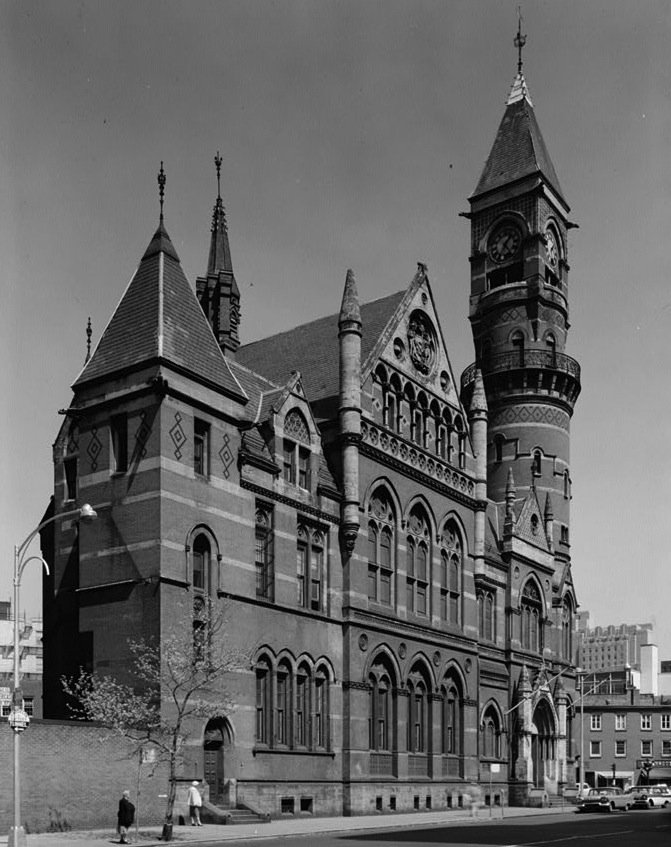
Joyce and New York City: Walking Tour led by JJS Treasurer, Glenn Johnston (registration FULL)
Led by James Joyce Society Treasurer, Glenn Johnston.
There are autobiographical elements and innumerable references to Dublin in James Joyce’s work, but even Joyceans may not know what an important role New York played in his own story. A Portrait of the Artist and Exiles were first published in book form and Ulysses was first published in serial form in New York. Exiles received its first English language production in New York. Joyce's son Giorgio married a New Yorker and spent time in the city. The walking tour will take in important sites such as the home of the Little Review in 1918, the building where Margaret Anderson and Jane Heap lived, and the courthouse where they were tried for obscenity. It will also touch on a range of writers and artists associated with Joyce—and perhaps even a bit of Beckett and Behan.
Glenn Johnston was educated at Trinity College Dublin and has had a varied career, including stints with the United Nations and in the fields of intelligence and risk consulting. He has been an avid collector of works by and about Joyce for 25 years.
This event is in-person only.
Tour will begin at 5:30 pm at Birch Coffee (56 Seventh Ave). Set-off is at 6:00 pm and will last for approximately 90 minutes. At 7:30 pm, we will likely retire to a nearby watering hole.
Rain date: Thursday, June 8.

Fargnoli/Gillespie, “An Introduction to an Introduction: ‘Reading James Joyce’ ” plus: “Tribute to Nicholas Fargnoli”
Book Launch: Reading James Joyce
A conversation between co-authors Nicholas Fargnoli and Michael Patrick Gillespie, moderated by James Joyce Society President, Jonathan Goldman.
Preceded by “A Tribute to Nicholas Fargnoli,” featuring remarks about the former Joyce Society President by Alison Armstrong, Heyward Ehrlich, and and Michael Patrick Gillespie
Reading James Joyce is a ready-at-hand compendium and all-encompassing interpretive guide designed for teachers and students approaching Joyce’s writings for the first time, guiding readers to better understand Joyce’s works and the background from which they emerged. Meticulously organized, this text situates readers within the world of Joyce including biographical exploration, discussion of Joyce’s innovations and prominent works such as Dubliners, Ulysses, and Finnegans Wake, surveys of significant critical approaches to Joyce’s writings, and examples of alternative readings and contemporary responses. Each chapter will provide interpretive approaches to contemporary literary theories and key issues, including end-of-chapter strategies and extended readings for further engagement. This book also includes shorter assessments of Joyce’s lesser-known works—critical writings, drama, poetry, letters, epiphanies, and personal recollections—to contextualize the creative and social environments from which his most notable publications arose. This uniquely comprehensive guide to Joyce will be an invaluable and comprehensive resource for readers exploring the influential world of Joyce studies.
Nicholas Fargnoli is Professor of English and Dean Emeritus of Humanities at Molloy University, his professional home for more than four decades. He has published on James Joyce, William Faulkner, and ethics. For twenty years, he served as President of the James Joyce Society. He has received awards for excellence in teaching and scholarship.
After receiving his PhD from the University of Wisconsin in 1980, Michael Patrick Gillespie taught for twenty-nine years at Marquette University as an Assistant, Associate, and a Full Professor and finally as the inaugural Louise Edna Goeden Professor of English. He has published on the works of James Joyce, Oscar Wilde, William Kennedy, Chaos Theory, Classic Hollywood Cinema, and Irish Film. He has received fellowships or grants from the National Endowment for the Humanities, the American Philosophical Society, the Humanities Research Center, the William Andrews Clark Library, the American Council of Learned Societies, the Wisconsin Humanities Council, and Marquette University. He is the only American recipient of the Charles Fanning Medal for Distinguished Work in Irish Studies.

"Larsen’s Harlem, Joyce’s Dublin: Notes on Racial Legibility," Zoë Henry
This talk considers how Nella Larsen and James Joyce, modernist authors rarely put into conversation with one another, critiqued reigning ideologies of race and nationhood via complementary formal methods. Joyce’s work often offered a scathing critique of colonialism, but his ambivalence to the Celtic Revival—and the blind patriotism this encouraged—finds an analogue in Larsen’s relationship to the tenets of “racial uplift.” Her novel Quicksand (1928) is unafraid to query the terms of its legibility, with a heroine that responds to demands she be ‘representative’ by fleeing all available subject positions. Moments of textual equivocation and withholding—what I call a subversive blankness—refuse monolithic conceptions of race, place and gender, as they do in the final episode of Joyce’s Ulysses. By focusing on depictions of interiority and the built environment, this talk suggests that literary “Blackness” and “Irishness” have much to say to one another, and that this was particularly so in a historical moment which saw both groups dealing with disillusion and disenfranchisement, at times from the very places (Dublin, Harlem) that sustained their art.
Zoë Henry is a writer and doctoral candidate in English at Indiana University, where she researches global modernism and Black studies. Her dissertation-in-progress examines an interracial modernist archive of novels, poems and dances, arguing that women figures of the twentieth century negotiated new forms of urban and racial visibility by remaining ‘private in public,’ at once performing and withholding their inner workings across the liminal spaces of the metropolis. Her work has been published or is forthcoming in the Virginia Woolf Miscellany, Modernism/modernity Print Plus, and the edited collection Teaching Joyce in the 21st Century. She received her BA from Brown University, and her public-facing writing has been featured in venues such as Slate, HuffPost, Insider and CNBC.
Twitter: @ZoeLaHenry
Website: www.zoelhenry.com

"Friendship and the challenges of biographical writing: the Joyces and the Colums," Margaret Kelleher
From Prof. Kelleher’s book project about Mary and Padraic Colum, a chapter of which is dedicated to the relationship between the Joyces and the Colums. Padraic Colum was president of the James Joyce Society for over two decades.
Professor Margaret Kelleher is Chair of Anglo-Irish Literature and Drama at University College Dublin and UCD Academic Lead on the Museum of Literature Ireland (MoLI), a collaboration between the National Library of Ireland and UCD which opened recently at Newman House, Stephen's Green, Dublin. Her publications include The Cambridge History of Irish Literature (2006) and The Maamtrasna Murders: Language, Life and Death in Nineteenth-Century Ireland (2018, UCD Press and University of Chicago Press) for which she was awarded the American Conference of Irish Studies prize for Books on Language and Culture and shortlisted for the Michel Déon Prize. Her current book project is a joint biography of Mary and Padraic Colum.

“Finding Nora,” Nuala O’Connor
RSVP Here
Presented with support from the Consulate General of Ireland in New York,
And, in partnership with The Center for Fiction.
When Nora Barnacle, a twenty-year-old from Galway working as a maid at Finn’s Hotel, meets young James Joyce on a summer’s day in Dublin, she is instantly attracted to him, natural and daring in his company. But she cannot yet imagine the extraordinary life they will share together. All Nora knows is she likes her Jim enough to leave behind family and home, in search of a bigger, more exciting life.
As their family grows, they ricochet from European city to city, making fast friends amongst the greatest artists and writers of their age as well as their wives, and are brought high and low by Jim’s ferocious ambition. But time and time again, Nora is torn between their intense and unwavering desire for each other and the constant anxiety of living hand-to-mouth, often made worse by Jim’s compulsion for company and attention. So, while Jim writes and drinks his way to literary acclaim, Nora provides unflinching support and inspiration, sometimes at the expense of her own happiness, and especially at that of their children, Giorgio and Lucia. Eventually, together, they achieve some longed-for security and stability, but it is hard-won and imperfect to the end.
In sensuous, resonant prose, Nuala O’Connor has conjured the definitive portrait of this strong, passionate and loyal Irishwoman. Nora is a tour de force, an earthy and authentic love letter to Irish literature’s greatest muse.
Nuala O’Connor, born in Dublin in 1970, lives in Co. Galway. Her fifth novel NORA (Harper Perennial/New Island, 2021), about Nora Barnacle, wife and muse to James Joyce, was recently published to critical acclaim in the USA, Ireland, the UK, and Germany, and is forthcoming in other languages. NORA was named as a Top 10 2021 historical novel by the NewYork Times and was the One Dublin One Book choice for 2022. Nuala curated the Love, Says Bloom exhibition at MoLI (Museum of Literature Ireland), on the Joyce family, for #Ulysses100. She is editor at flash fiction e-zine Splonk. Website: www.nualaoconnor.com Twitter: @NualaNiC
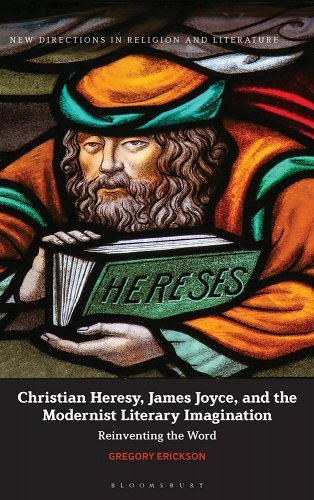
“Book Talk: Christian Heresy, James Joyce, and the Modernist Literary Imagination: Reinventing the Word,” Gregory Erickson
Prof. Gregory Erickson will talk about his book, which narrates reading 2,000 years of Christian heresy through the works of James Joyce. Through passages in Ulysses and Finnegans Wake, we will move from the ancient Gnostics to Reformation iconoclasm to Book of Mormon to Joyce celebrations on the streets of New York City and Antwerp.
Gregory Erickson is Professor of Interdisciplinary Studies at New York University’s Gallatin School, where he teaches courses on modern literature, James Joyce, popular culture, and religion. He is the author of The Absence of God in Modernist Literature (Palgrave Macmillan, 2007), the co-author, with Richard Santana, of Religion and Popular Culture: Rescripting the Sacred (McFarland, 2008; 2016), and the co-editor of the collection Reading Heresy: Religion and Dissent in Literature and Art (De Gruyter 2017). His two most recent books are Christian Heresy, James Joyce and the Modernist Literary Imagination (Bloomsbury 2022) and Speculative Television and the Doing and Undoing of Religion (Routledge 2022). He is a founding member and former president of the International Society for Heresy Studies. He is also a part time professional trombone player.

“‘Their syphilisation you mean’: Irish Modernism and the Politics of Venereal Disease,” Lloyd (Meadhbh) Houston
Derived from my forthcoming monograph, Irish Modernism and the Politics of Sexual Health, in this paper I examine how figurations of venereal disease, accounts of its aetiology, and campaigns for its regulation were used by Joyce and his literary and political contemporaries to construct and contest models of Irish identity in the first decades of the twentieth century. Surveying the political culture of early twentieth-century Ireland in conversation with Dubliners and Ulysses, I trace the ways in which references to venereal disease were employed in the anti-enlisting campaigns of groups such as the Irish Transvaal Committee, Inghinidhe na hÉireann, and Sinn Féin to offer an explanatory metaphor for the malign impact of British imperial rule in Ireland, and illustrate the ways in which authors such as Joyce and Oliver Gogarty echoed these positions in their literary critiques of British militarism. At the same time, focussing on the “Cyclops” and “Circe” episodes of Ulysses, I also demonstrate the ways in which Joyce was to distance himself from the more chauvinistic deployments of this rhetoric, particularly where they concerned Ireland’s Jewish population. Ultimately, turning my attention to “Eumaeus”, I trace the contours of an emerging weariness in Joyce’s rendering of the entire question of sexual health as the grounds for conceptualizing Irish national identity, and sketch its influence on later authors such as Flann O’Brien.
A non-binary academic, writer, and activist from the North of Ireland, Dr Lloyd (Meadhbh) Houston is SSHRC – CIHR Banting Post-Doctoral Fellow in English at the University of Alberta in Canada. Their research explores the cultural politics of sexual health, queer history and culture, and the history of erotica and obscenity, and has appeared in publications such as the Review of English Studies, the Times Literary Supplement, and the Irish Times. Their first monograph, Irish Modernism and the Politics of Sexual Health, is forthcoming with Oxford University Press.
You can access their writing here or follow them on Twitter here.
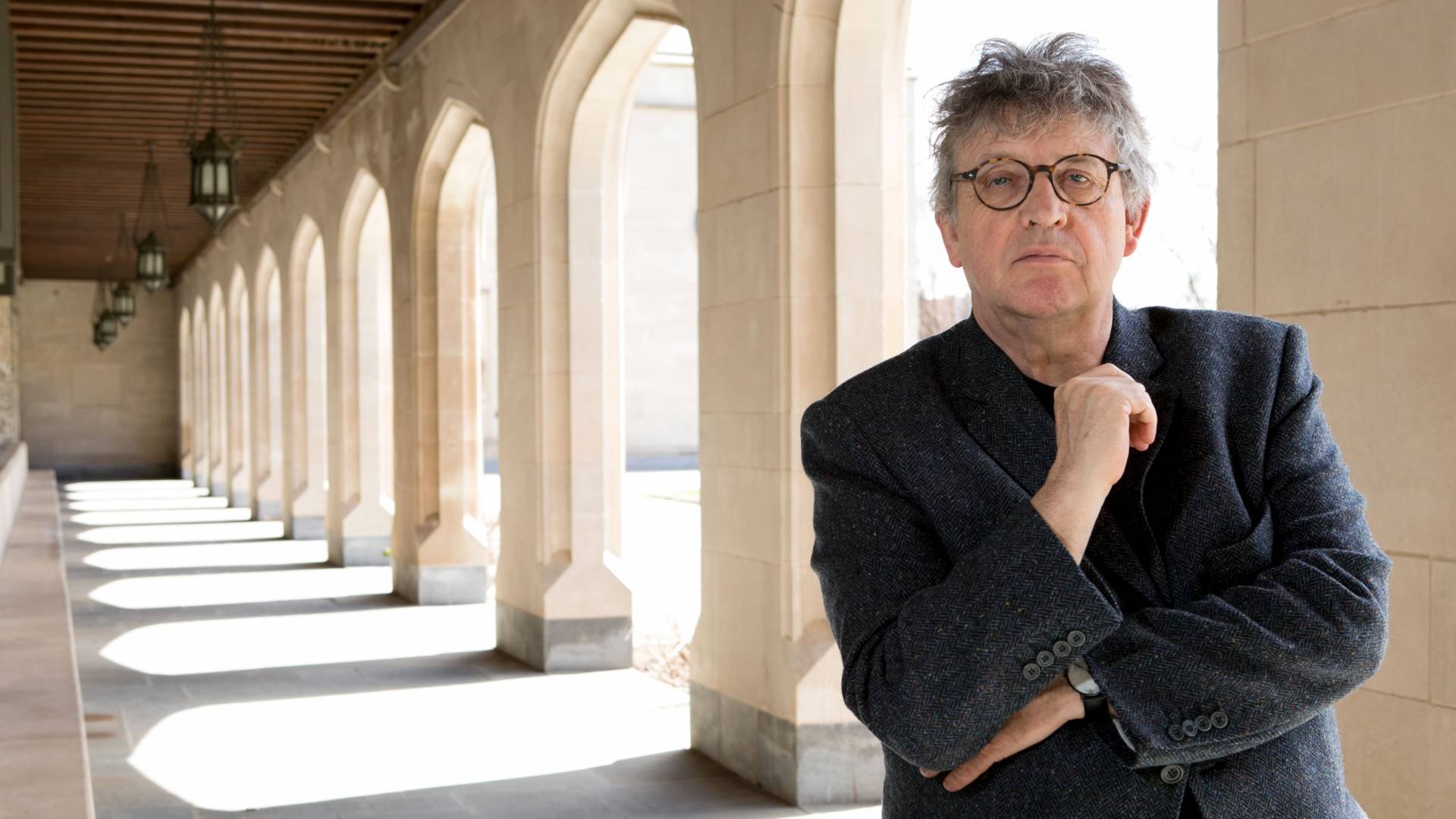
"Ulysses: A Pisgah View, "Paul Muldoon
In partnership with the Consulate General of Ireland in New York.
Paul Muldoon is an Irish poet and professor of poetry, as well as an editor, critic, playwright, lyricist, and translator.
After studying at Queen’s University, Belfast, he published his first book, New Weather in 1973, at the age of 21. From 1973 he worked as a producer for the BBC in Belfast until, in the mid-1980’s, he gave up his job to become a freelance writer. Muldoon is the author of fourteen full-length collections of poetry, including the most recent Howdie-Skelp (2021), Frolic and Detour (2019), and One Thousand Things Worth Knowing (2015). He has published innumerable smaller collections, works of criticism, opera libretti, books for children, song lyrics, and radio and television drama. His poetry has been translated into twenty languages.
Muldoon served as Professor of Poetry at Oxford University from 1999 to 2004 and as poetry editor of The New Yorker from 2007 to 2017. He has taught at Princeton University since 1987 and currently occupies the Howard G.B. Clark ’21 chair in the Humanities. He was the Founding Chair of the Lewis Center for the Arts. Muldoon is a Fellow of the Royal Society of Literature, the American Academy of Arts and Sciences and the American Academy of Arts and Letters. Among his awards are the 1972 Eric Gregory Award, the 1980 Sir Geoffrey Faber Memorial Award, the 1994 T. S. Eliot Prize, the 1997 Irish Times Poetry Prize, the 2003 Pulitzer Prize for Poetry, the 2003 Griffin International Prize for Excellence in Poetry, the 2004 American Ireland Fund Literary Award, the 2004 Shakespeare Prize, the 2006 European Prize for Poetry, the 2015 Pigott Poetry Prize, the 2017 Spirit of Ireland Award from the Irish Arts Center (NYC), the 2017 Queen's Gold Medal for Poetry, the 2018 Seamus Heaney Award for Arts & Letters, and the 2020 Michael Marks Award. He is the recipient of honorary doctorates from ten universities.

“What's in a Name? Ulysses, Nationalisms, and Wars,” Tekla Mecsnóber, University of Groningen
Online Event via Zoom. Link below.
Tekla Mecsnóber, lecturer in the Department of English Language and Culture at the University of Groningen in the Netherlands, is coeditor of Publishing in Joyce's "Ulysses": Newspapers, Advertising and Printing.
Mecsnóber’s new monograph, Rewriting Joyce's Europe, sheds light on how the text and physical design of James Joyce's two most challenging works, Ulysses and Finnegans Wake, reflect changes that transformed Europe between World Wars I and 11. Looking beyond the commonly studied Irish historical context of these works, Tekla Mecsnóber calls for more attention to their place among broader cultural and political processes of the interwar era.
Published in 1922 and 1939, Ulysses and Finnegans Wake display Joyce's keen interest in naming, language choice, and visual aspects of writing. Mecsnóber shows the connections between these literary explorations and the real-world remapping of national borders that was often accompanied by the imposition of new place names, languages, and alphabets. In addition to drawing on extensive research in newspaper archives as well as genetic criticism, Mecsnóber provides the first comprehensive analysis of meanings suggested by the typographic design of early editions of Joyce's texts.
Mecsnóber argues that Joyce's fascination with the visual nature of writing not only shows up as a motif in his books but also can be seen in the writer's active role within European and North American print culture as he influenced the design of his published works. This illuminating study highlights the enduring-and often surprising-political stakes in choices regarding the use and visual representation of languages.
Meeting ID: 959 6093 6757 / Password: bearing
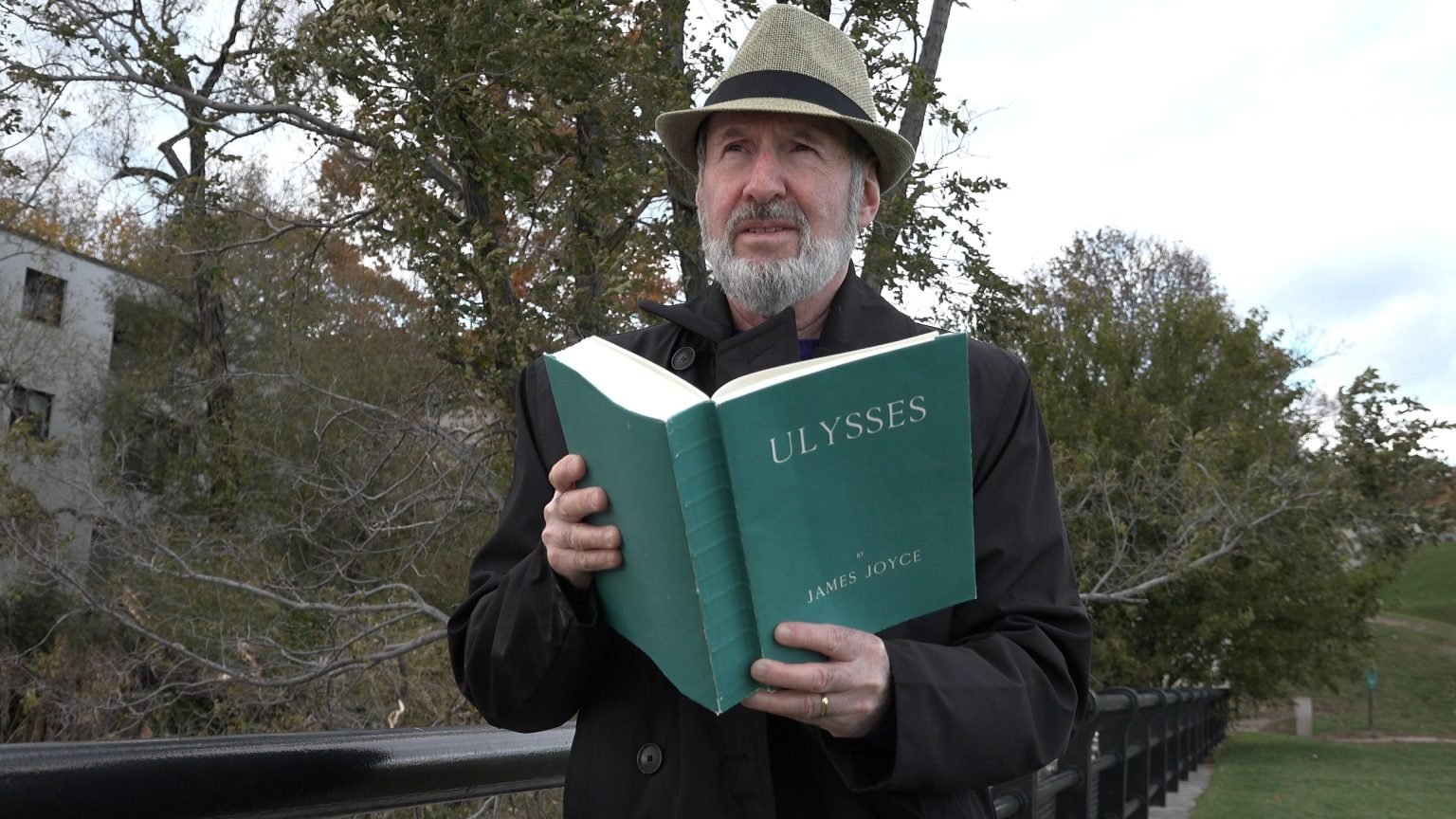
Celebrating Michael Groden: A Public Tribute
With the the Poetry Collection of the University Libraries, University at Buffalo, The State University of New York.
Co-sponsored by the Dublin James Joyce Summer School; Edward Everett Root Press; The Groden, Helper-Morris, Reisman, and Schwartz-James Families; International James Joyce Foundation; James Joyce Literary Supplement; James Joyce Quarterly; Unterberg Poetry Center, 92nd Street Y; Western Libraries; Western University; and the Zurich James Joyce Foundation.
Poetry Collection Event Page available here.
Program:
Welcome and opening remarks, James Maynard, Curator of the Poetry Collection
Video excerpt: LET US ReJOYCE: The Michael Groden Papers at the University at Buffalo by Godfrey Jordan, Filmmaker
Remembrances of and tributes to Michael Groden and his legacy by colleagues and former students:
William (Bill) Brockman
Librarian Emeritus, Penn State University Libraries
Ronan Crowley
Vice President and President-Elect, International James Joyce Foundation
Manina Jones
Professor, Department of English and Writing Studies, Western University
Terence Killeen
James Joyce Centre, Dublin
Vicki Mahaffy
Clayton and Thelma Kirkpatrick Professor, Department of English, University of Illinois Urbana-Champaign
Sam Slote
Associate Professor, Co-director of M.Phil. in Irish Writing, School of English, Trinity College Dublin
Miriam Silver Verga
Former M.A. English Language and Literature/Letters Student, University of Western Ontario
Closing remarks, Molly Peacock, Poet, Memoirist, and Biographer
Our calendar of Joyce-related events across New York City:
Want to add an event to our Joyce Studies in NYC calendar?
Email us at jamesjoycesocietyny@gmail.com.
Events Archive
-
2026
- Jun 9, 2026 “Ulysses in Nighttown,” a Staged Reading by Elevator Repair Service Jun 9, 2026
- Mar 27, 2026 Lunchtime Launch: Chris GoGwilt, Keri Walsh, and Shinjini Chattopadhyay, "Joyce Studies Annual, Special Issue" Mar 27, 2026
- Mar 6, 2026 Lunchtime Book Launch: New Biographies of Bennett Cerf (by Gayle Feldman) and Margaret Anderson (by Adam Morgan) Mar 6, 2026
- Feb 2, 2026 Adapting Ulysses: Interview with John Collins and Scott Shepherd from Elevator Repair Service Feb 2, 2026
-
2025
- Dec 12, 2025 Lunchtime Book Launch: Barry Devine and Ellen Scheible: "Teaching James Joyce in the Twenty-First Century" Dec 12, 2025
- Oct 8, 2025 Casey Drosehn Gough: "Joycean Saínz: Ulysses, Finnegans Wake, and Mexican History in the Novels of Gustavo Saínz" Oct 8, 2025
- Sep 17, 2025 Julie McCormick Weng: “James Joyce’s Encounter with Sexual Harassment” Sep 17, 2025
- May 1, 2025 "Anti-Semitism and Blackface America as Metaphor in James Joyce's Ulysses," Amadi Ozier May 1, 2025
- Mar 17, 2025 Staged Reading of Exiles, by Elevator Repair Service Mar 17, 2025
- Mar 4, 2025 “Guilt and Finnegans Wake: From Original Sin to the Irredeemable Body,” Talia Abu (Book Launch) Mar 4, 2025
- Feb 3, 2025 "Ulysses: A Design History," Glenn Johnston Feb 3, 2025
-
2024
- Dec 10, 2024 The James Joyce Collection at the University at Buffalo, with James Maynard, Alison Fraser, and Damien Keane Dec 10, 2024
- Nov 12, 2024 Vicki Mahaffey, Book Launch: "The Joyce of Everyday Life" Nov 12, 2024
- Sep 12, 2024 "Complicit Reading: Castle-Agent Readers and the 'Hostile Milieu' of Ulysses," Eric A. Lewis Sep 12, 2024
- Jun 16, 2024 Bloomsday: Portals of Discovery Jun 16, 2024
- Jun 15, 2024 Bloomsday 2024: A Shout in the Street Jun 15, 2024
- May 22, 2024 Alison Armstrong: "Joyce in transition: the birth of ALP" May 22, 2024
- Feb 5, 2024 Mary Burke, "Mixed: Race and Language in Ireland from Joyce to Ó Cadhain" Feb 5, 2024
-
2023
- Oct 25, 2023 "Close Readings, Genetic Readings, Decolonial Readings of Ulysses" Shinjini Chattopadhyay Oct 25, 2023
- Oct 5, 2023 Joyce and New York City Walking Tour, Part Two: Uptown!, Glenn Johnston Oct 5, 2023
- Sep 21, 2023 “What’s Love Got To Do With It? The Joycean Anecdote and Femme-Queer Modernist Counterpublics,” Margot Backus Sep 21, 2023
- Sep 15, 2023 Making Joyce Studies Safe for All, roundtable and open forum (remote) (RSVP necessary) Sep 15, 2023
- Jun 16, 2023 The JJS Bloomsday Celebration with IAWA–featuring Elevator Repair Service Jun 16, 2023
- Jun 1, 2023 Joyce and New York City: Walking Tour led by JJS Treasurer, Glenn Johnston (registration FULL) Jun 1, 2023
- May 16, 2023 Fargnoli/Gillespie, “An Introduction to an Introduction: ‘Reading James Joyce’ ” plus: “Tribute to Nicholas Fargnoli” May 16, 2023
- Mar 15, 2023 "Larsen’s Harlem, Joyce’s Dublin: Notes on Racial Legibility," Zoë Henry Mar 15, 2023
- Feb 2, 2023 "Friendship and the challenges of biographical writing: the Joyces and the Colums," Margaret Kelleher Feb 2, 2023
-
2022
- Dec 9, 2022 “Finding Nora,” Nuala O’Connor Dec 9, 2022
- Oct 18, 2022 “Book Talk: Christian Heresy, James Joyce, and the Modernist Literary Imagination: Reinventing the Word,” Gregory Erickson Oct 18, 2022
- Sep 23, 2022 “‘Their syphilisation you mean’: Irish Modernism and the Politics of Venereal Disease,” Lloyd (Meadhbh) Houston Sep 23, 2022
- May 19, 2022 "Ulysses: A Pisgah View, "Paul Muldoon May 19, 2022
- Apr 8, 2022 “What's in a Name? Ulysses, Nationalisms, and Wars,” Tekla Mecsnóber, University of Groningen Apr 8, 2022
- Mar 25, 2022 Celebrating Michael Groden: A Public Tribute Mar 25, 2022
- Feb 8, 2022 – Jun 7, 2022 New York Ulysses Book Club (weekly) Feb 8, 2022 – Jun 7, 2022
- Feb 4, 2022 Ulysses Centenary & 75th JJS Anniversary II: Robert Spoo & Kerri Maher (RSVP required) Feb 4, 2022
- Feb 2, 2022 Ulysses Centenary & 75th JJS Anniversary I: Clare Hutton & Jonathan Goldman Feb 2, 2022
-
2021
- Nov 18, 2021 “Introduction to the University at Buffalo Poetry James Joyce Collection,” James Maynard & Alison Fraser, SUNY Buffalo Nov 18, 2021
- Sep 24, 2021 “James Joyce and Watch Technology,” Katherine Ebury, University of Sheffield Sep 24, 2021
